
by Shashikanth Heerekar | May 15, 2025 | SEO News
Boost your business with expert SEO Clearwater FL services. Discover local trends, tips, and real success stories from top Clearwater SEO companies.
Introduction: Understanding the Importance of SEO in Clearwater, Florida
Hi there! Let me tell you why SEO Clearwater FL is super important. If you run a small or big business in Clearwater, you want more people to find you online. That’s what Clearwater SEO does. It helps your business show up on Google. Many people search online before buying, so being on the top of search results is great. A smart Clearwater SEO company can help you win online.
Why Clearwater Needs Strong SEO
Clearwater has many local shops and services. People search for things like food, cleaning, plumbers, and more. That’s why Clearwater SEO services are needed to help you get seen first.
If you’re not on Google’s first page, people won’t find you. That’s why we must use strong SEO Clearwater work. Local buyers love fast results, and smart SEO gives that. I always tell my clients that good SEO brings more money.
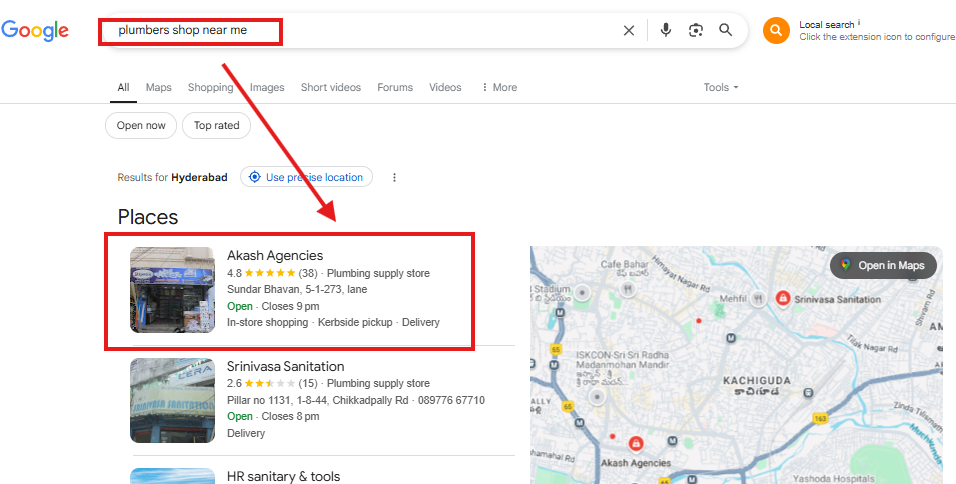
The Current SEO Landscape in Clearwater, Florida: Trends and Insights
Right now, many businesses in Clearwater use SEO to grow fast. People are hiring SEO consultants in Clearwater, Florida more than ever. They want expert help. Clearwater SEO services are growing because local businesses want to beat the competition.
What Clearwater Businesses Are Doing Now
Many are using Clearwater web design and Clearwater website design with strong SEO. They use keywords like Clearwater SEO company, web design Clearwater, and marketing Clearwater FL to show up on top.
Most companies now work with a web design company in Clearwater FL to build sites that help SEO. When you mix great design with SEO Clearwater, the results are amazing. I’ve seen even small shops get big traffic. That’s the power of smart local SEO.
Principal Advantages of SEO for Clearwater Local Businesses
Let’s talk about the good stuff! With SEO Clearwater, businesses can:
- Get more people visiting their websites
- Get more phone calls and sales
- Save money on ads
- Beat other local businesses
- Build trust online

How SEO Makes a Business Better
When someone types “pizza near me,” good Clearwater SEO helps your shop show up first. That means more customers, more sales, and more happy days. That’s why people love SEO Clearwater FL.
SEO helps even small stores compete with big chains. With help from a Clearwater SEO company, your store can look professional. It can also bring long-term traffic. And the best part? It’s not necessary to pay for each click!
Effective SEO Strategies to Improve Online Visibility in Clearwater
If you want your business to grow in Clearwater, Florida, you need to follow smart SEO steps. Many local businesses are using SEO Clearwater FL, Clearwater SEO services, and Clearwater web design to get better results on Google. I also use these methods for my clients to help them get more people to their website.
Here are 5 top SEO strategies that work well:
- Create and update your Google My Business listing – This helps people find your business when they search for it in Clearwater.
- Use local keywords like “Clearwater SEO company” and “SEO Clearwater” in your website pages and blog content.
- Post helpful and fresh blog content every week using marketing Clearwater FL and Clearwater SEO phrases.
- Obtain backlinks from nearby Clearwater websites to increase Google’s perception of your company.
- Make your website mobile-friendly and fast with help from a good Clearwater web design company.
These strategies help your business get more views, more clicks, and better online success. A trusted SEO consultant in Clearwater Florida will always follow these steps.
Common SEO Mistakes to Avoid for Clearwater Businesses
Many business owners in Clearwater make small SEO mistakes without knowing it. Even if they are using Clearwater SEO services, these errors can hurt their Google ranking. I have seen these problems in many websites and always fix them first.
Here are 5 big mistakes Clearwater businesses should avoid:
- Not using location-based keywords like “SEO Clearwater FL” or “Clearwater SEO company” in their content.
- Having slow or outdated websites with poor Clearwater website design that doesn’t work well on mobile.
- Ignoring photo alt-text and meta descriptions, which are important for SEO.
- Using copied content from other websites, which makes Google drop your rank.
- Getting links from spammy websites instead of high-quality local sites.
A good SEO Clearwater FL expert or Clearwater SEO company can help you fix these problems. Avoiding these mistakes will save time, money, and help your website rank higher.
Case Studies: Successful SEO Implementations in Clearwater, Florida
Here are two quick stories:
Case 1: A small Clearwater café used SEO Clearwater FL and saw 50% more online orders in 3 months. The café worked with a Clearwater web design company to make its website fast and pretty. It also hired SEO consultants in Clearwater Florida to get found online.
Case 2: A local plumber used Clearwater SEO services and jumped from page 3 to page 1 on Google. With help from the best SEO company in Florida, the business now gets calls every day.
Real Results from Clearwater SEO Experts
With Clearwater SEO, real businesses get real results. The right SEO plan makes a huge difference. You don’t need a huge budget—just smart steps.
When I helped a salon in Clearwater, their site went from 5 visits to 200 per day. And that was just by using basic SEO Clearwater FL tips. So yes, SEO really works here.
Conclusion: Elevating Your Business with Expert SEO Practices in Clearwater
Let’s wrap it up. If you want your business to grow in Clearwater, you need SEO Clearwater FL. It helps people find you, call you, and trust you. Hiring a good Clearwater SEO company, Clearwater website design agency, or SEO consultants in Clearwater Florida can change your business forever. You should talk to a Clearwater SEO expert, improve your site with a Clearwater web design company, and get listed everywhere online. Don’t wait too long—every day you delay, your competitors move ahead. Start with simple Clearwater SEO services. Call or message the best SEO consultants in Clearwater, Florida, and see your business shine.
FAQs About SEO Clearwater FL
What is SEO, and how does it help my Clearwater business?
SEO means helping your website rank high on Google. With SEO Clearwater FL and Clearwater SEO services, more people will see your business. This brings in more calls, visits, and sales. I’ve seen it work for many local shops.
How do I choose the right Clearwater SEO company?
Pick a trusted Clearwater SEO company with good results and reviews. They should know local keywords like SEO Clearwater and offer Clearwater website design too. I always choose someone who explains SEO in easy words. Good SEO help makes a big difference.
How much does SEO cost in Clearwater, Florida?
The majority of Clearwater SEO services cost between $300 and $1000 a month. Prices change based on your needs and goals. SEO Clearwater FL is a smart way to grow long-term. It brings in free traffic without paid ads.
How long before SEO shows results in Clearwater?
SEO takes time, usually 2–3 months to see growth. Good Clearwater SEO needs planning and the right steps. I’ve seen faster results with top SEO consultants in Clearwater Florida. Just be patient, and results will come.
Can SEO help small businesses in Clearwater?
Yes, SEO helps even small stores and startups. I’ve watched Clearwater SEO services bring more traffic to small local shops. With SEO Clearwater FL, you don’t need a big budget to get noticed. Smart strategy beats size online.

by Shashikanth Heerekar | May 15, 2025 | SEO News
Boost your local visibility with top SEO Clearwater services! Get more leads, better Google rankings & grow your business online with expert strategies.
Introduction
SEO in Clearwater helps people find your business online. If you want more people to visit your Clearwater shop, use SEO. With local SEO Clearwater, your store appears on Google when someone searches for it. That means more people, more sales, and more fun! Clearwater SEO makes your business easy to find
The Current State of SEO Practices in Clearwater’s Local Market
The way people use the internet is changing, and in Clearwater, many businesses are using Clearwater SEO to help people find them online. If you have a lemonade stand or a toy store, wouldn’t it be nice if people could see it on Google? That’s why SEO Clearwater FL is super important! It helps your website appear when someone searches for fun stuff in town.
Many grown-ups now work with a Clearwater SEO company or hire SEO consultants in Clearwater, Florida, to help them improve their SEO optimisation in Florida. These helpers know how to use the right words so your site gets found. That means more people visiting your site and your shop!
Many Clearwater SEO services help with website fixes, adding good pictures, and writing smart words that people type into search boxes. Even places like Bradenton Search Engine Optimisation and web development in Clearwater are helping nearby businesses grow online.
Sometimes, a cool Clearwater web design company will also offer SEO services in Florida as part of their work. That’s great because your site needs to look fun and be easy to find! Businesses are also calling marketing agencies in Clearwater, FL, to help tell everyone how awesome they are.
So, if you have a store, service, or even a cool blog, using SEO Clearwater is like putting a big, bright sign on the internet saying, “Hey! Look at me!” With a little help from the right team, you can be one of the best in town. And guess what? More clicks mean more smiles. That’s why Clearwater SEO is so cool.
Key Benefits of an Effective SEO Strategy for Clearwater Businesses
1. More People Can Find You Online
If you have a shop or a business, Clearwater SEO helps people see it when they search online. With smart SEO Clearwater strategies, your website can be on the first page of Google! That means more visitors and more fun. Clearwater SEO services help make your site easier to find, just like a big online sign!
2. You Get More Customers
When more people visit your website, some of them become customers. That’s how Clearwater SEO helps your business grow. A good Clearwater SEO company knows how to bring the right people to your site. With help from SEO Clearwater FL, you’ll get more clicks, more calls, and more sales!
3. You Look Super Trustworthy
If your business appears first in search results, people will trust it more. Using SEO Clearwater makes your business look smart and safe. That’s why many companies work with a marketing agency in Clearwater or use Clearwater SEO services to look more professional online.
4. You Can Beat Your Competition
Do you want to be better than the toy shop down the street? Or the ice cream store on the next block? With strong Clearwater SEO, you can! When you use SEO Clearwater, your website can be above theirs on Google. That means more people will visit you first! Thanks to Clearwater SEO services, your business can win online.
Common SEO Challenges Faced by Clearwater Companies and Their Solutions
Sometimes, businesses in Clearwater have a hard time with SEO, but that’s okay because there are ways to fix it. One big problem is not knowing which words to use on their websites. That’s when SEO consultants in Clearwater, Florida, come in to help. They find the right words so people can find your business when they search on Google. If you don’t have the right words, it’s like trying to play hide and seek, but no one can find you!
Another problem is that some websites are slow or don’t work well on phones. That isn’t good because most people use their phones to look stuff up. A smart Clearwater SEO company or Clearwater agency can help fix that. They make sure the website is fast and easy to use, which makes Google happy, and Google will show your site to more people.
Also, some businesses don’t know where to start. That’s super common! But with help from Clearwater SEO services, you can make a plan. They tell you what to fix and what to add to make your website better. Working with SEO Clearwater FL experts makes it easier to understand all the steps.
And guess what? Some people think SEO is too hard or boring, like the word Erdbeerkäse (which is German for strawberry cheese—it sounds funny, right?). But just like you can learn a silly word like Erdbeerkäse, you can also learn how SEO Clearwater works. You don’t have to be scared. The right SEO consultants in Clearwater, Florida, can make it simple and fun, just like learning a new word!
So don’t worry if SEO seems tricky. Your Clearwater SEO can be awesome with a little help and some smart people.
Best Practices for Successful SEO Implementation in Clearwater
1. Use the Right Words on Your Website
When people look for your business, you want them to find you. That’s why SEO Clearwater is so helpful. Using special words like “ice cream Clearwater” or “shoe shop near me” helps your site appear on Google. A good Clearwater SEO company can help you pick the best words!
2. Make Sure Your Website Works on Phones
Many people search on their phones, so they’ll leave if your site looks funny or doesn’t work right. That’s where Clearwater SEO services come in. They also fixed your site, so it looks great on phones and computers!
3. Add Your Business to Google
If you’re not on Google Maps, people won’t find you. Local SEO Florida and local SEO services Florida ensure your name, address, and hours are right. That helps your business show up in nearby searches.
4. Get Good Reviews Online
People trust reviews! Ask happy customers to leave nice words about your business. This will improve your SEO, Clearwater FL, and increase your trust.
5. Ask for Help from SEO Experts
Sometimes you need grown-up help. That’s okay! SEO consultants in Clearwater, Florida, know all the best tricks. They help make your site awesome and easy to find!
6. Don’t Get Confused by Strange Words
Some things, like gibt es Erdbeerkäse or was ist Erdbeerkäse, might sound silly, like “Is there strawberry cheese?” But don’t worry! Focus on SEO Clearwater, not weird stuff, cockroach control Toronto, or alcohol assessment Greensboro. Stay on track with good Clearwater SEO tips.
Case Study: How a Clearwater Business Enhanced Its Online Presence through SEO
Once, a toy store in Florida wanted more people to find it online. The owner didn’t know how to do it, so they sought help and found a team offering Clearwater SEO. The team explained that using the right SEO service in Florida could attract more people. They fixed the website, made it faster, and used better words like “cool toys, Clearwater.” That’s called local SEO in Florida!
The toy shop was also listed on Google Maps with help from a smart SEO agency in Florida. This was super helpful because more moms and dads could find the store when they searched online. The business also worked with SEO consultants in Clearwater, Florida, to get good reviews and keep the website fresh with new pictures and fun posts.
One day, the owner found a cool Clearwater web design company that worked with the SEO team. They made the website look fun and colourful. Then, they used local SEO services in Florida to ensure the website showed up for people living nearby.
Even better, the store started showing up in other places like Pinellas Park, FL, thanks to SEO services in Pinellas Park. The business kept getting help from different SEO agencies in Florida, who knew what to do and gave the best ideas.
Soon, more people visited the toy store. The owner was super happy and said using the SEO service in Florida was the best thing ever! The store became popular thanks to Clearwater SEO services and help from SEO Clearwater. This shows how using the right SEO services in Florida and a good team can change everything. Now, the toy store is smiling online and in real life.
Conclution
To grow your shop in Clearwater, use Clearwater SEO and get help from SEO consultants in Clearwater, Florida. A cool Clearwater SEO company can fix your site and use smart words. With local SEO in Florida, more people will find you. So if you want your business to be a star, trust SEO Clearwater and shine online.
FAQs
1. How can Clearwater SEO help my small business get more customers?
Using Clearwater SEO helps your business show up when people search online. With help from a trusted Clearwater SEO company, you’ll get more clicks, calls, and visits. Smart SEO Clearwater FL strategies boost your visibility, making it easier for locals to find your store and choose you over others.
2. What makes SEO Clearwater services better than normal advertising?
Unlike ads that stop once your budget runs out, Clearwater SEO services work long-term. A solid plan by SEO consultants in Clearwater, Florida, brings steady traffic. With proper SEO optimisation in Florida, you grow your brand naturally. Working with a good marketing agency in Clearwater, FL, saves you money over time.
3. Do I need web design to use SEO Clearwater services?
Yes! A good-looking and fast site is key for SEO Clearwater. A Clearwater web design company and web development Clearwater experts help improve your site’s layout, making it easy for people and Google to like. That’s why pairing design with SEO in Clearwater, FL gives the best growth results.
4. Is local SEO better for my business than regular SEO?
Yes, local SEO Florida is perfect if your customers are nearby. It uses maps, reviews, and searches like “near me.” Great local SEO services from a Clearwater SEO company in Florida help people find you quickly. It’s more personal and effective than national SEO, especially for small stores and services.
5. Can SEO help with weird or unrelated topics like Erdbeerkäse or cockroach control in Toronto?
SEO Clearwater works for all topics—even Erdbeerkäse or cockroach control Toronto—but you must target the right keywords. Whether it’s alcohol assessment Greensboro or toys in Clearwater, a marketing agency Clearwater or an SEO agency Florida helps find what people search, even if it’s strange or niche.
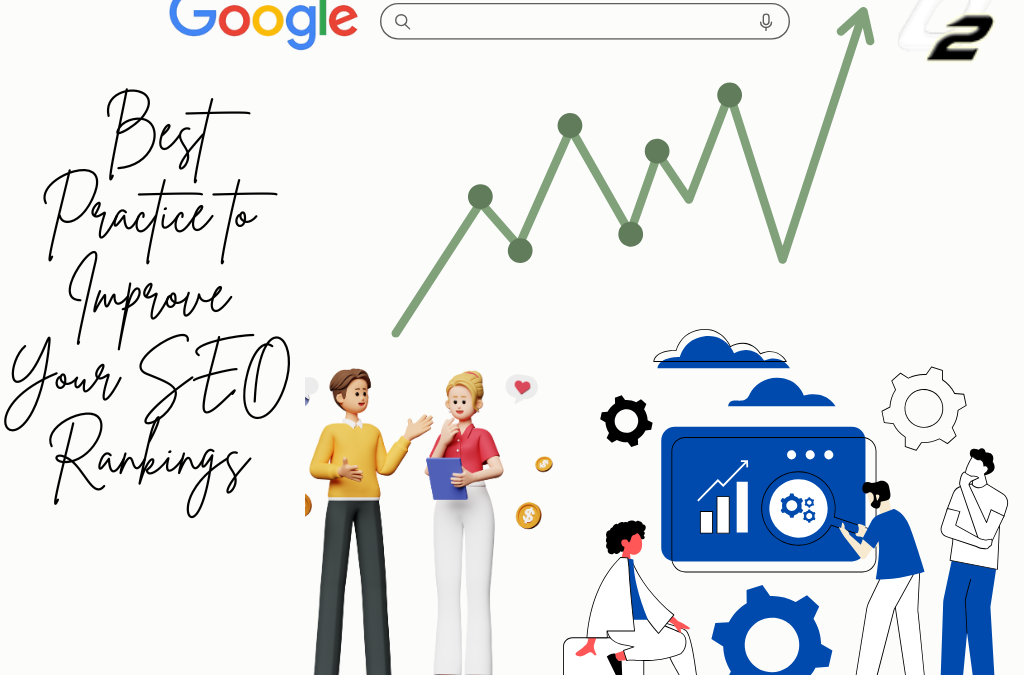
by Shashikanth Heerekar | May 12, 2025 | SEO News, Technology
10 Powerful Ways to Improve SEO Rankings and Drive More Conversions is your ultimate guide to results-focused strategies. Learn actionable methods to attract targeted traffic, increase authority, and convert visitors into loyal customers.
Why is there a need for SEO practices to improve ranking?
Want to get your website seen by more people and turn those visitors into customers? Then this is the ultimate guide for you. “10 Powerful Ways to Improve SEO Rankings and Drive More Conversions” gives you simple steps to do just that.
Let’s assume your shop is on the busiest street in the market, so more people will walk in and buy what you’re selling.
In the same way, Google (search engines) is also a type of market where many sellers (websites) sell their services or products. This search engine, like Google, will bring the right people your way.

These aren’t complicated tricks, but solid ways to make your website stand out. For example, if you sell handmade jewelry, we’ll talk about using the right words so people searching for “unique silver earrings” “latest necklace” “best earings to gift your loved ones“ this kind of keywords are often used according to the search intent of the users, so making sure using right keywords in the artcile can influence your google ranking.
By following the ten powerful methods below, you’ll not only see your website climb higher in search results but also attract visitors who are interested in what you have.
As a full-time content writer, I followed these rules, which have improved my ranking in Google top searches with full-proof images too.
This means more clicks, more engagement, and ultimately, more sales. It’s all about getting the right traffic and turning those visitors into happy, paying customers.
10 Powerful Ways to Improve SEO Rankings and Drive More Conversions
1. High-Quality, Comprehensive Content
According to my view, Great content is the backbone of any blog post to rank on search engine. Your content must be detailed, easy to understand, and better than what’s already ranking.
Make sure your article is not AI generated, it should be fully human written article and mostly try to add your own experiences or your knowledge while writting an article.
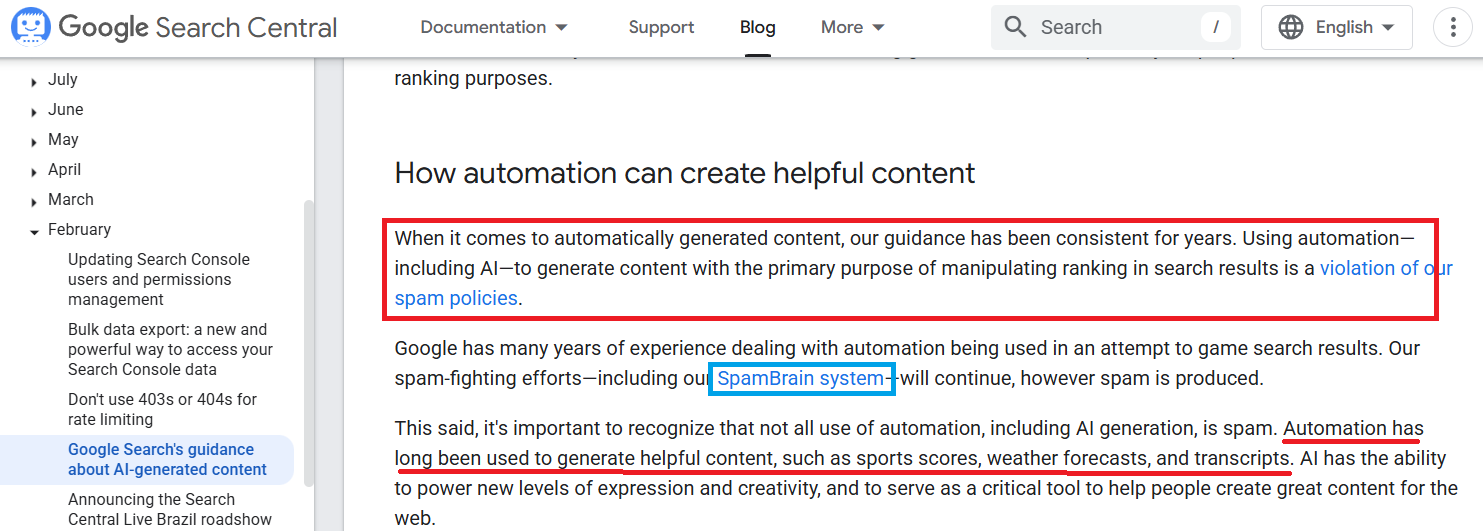
It has a greater impact on searches. Also, I recommend that you revise or update your content every 6 months, providing users with the latest information in your blog posts.
It also indirectly retains your old users to your blog post.
Answer all potential questions users may have about a topic in one place. For example, if you’re writing about “SEO best practices for content,“ include keyword tips, examples, and tools.
Google rewards pages that provide value and depth. Quality content helps build authority and trust, which are key parts of SEO success.
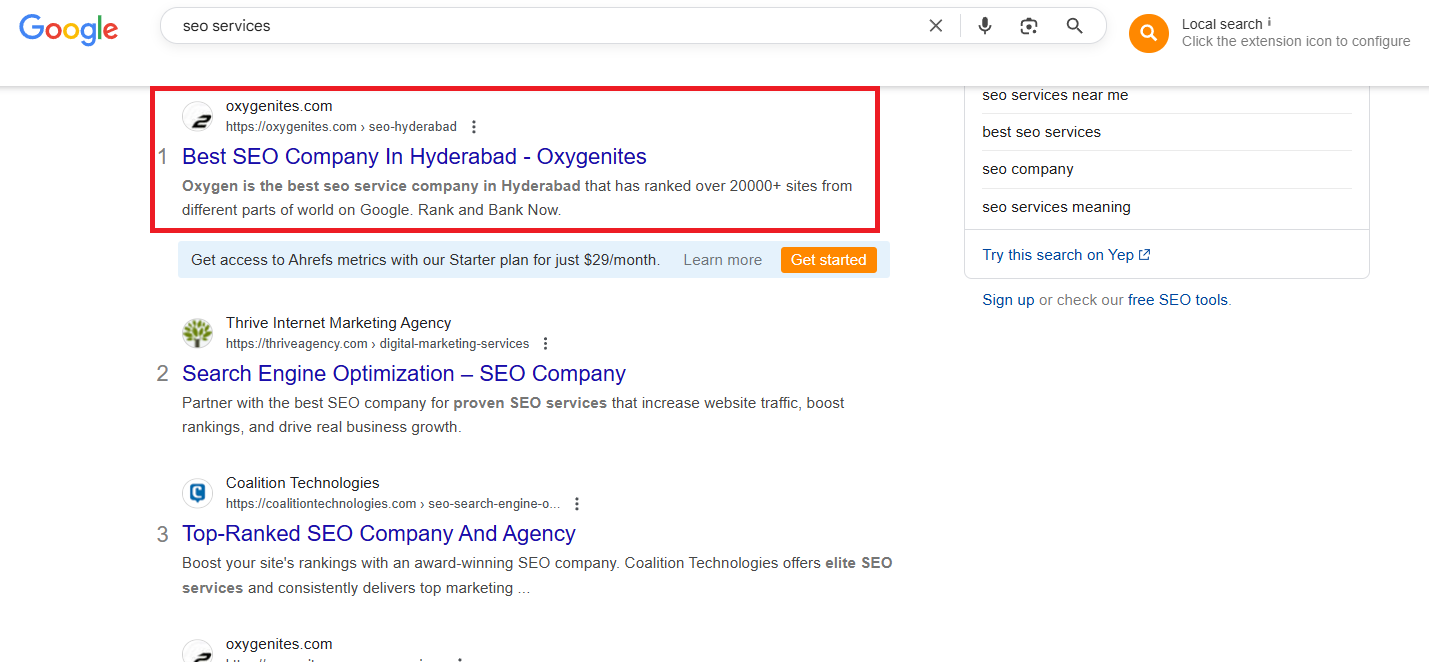
Note : seo services keywords is ranking because of good keyword and good content.
2. Prioritise User Intent
To improve your SEO rankings, you must understand what users are really looking for. User intent refers to the goal a person has when typing a query in Google.
For example, someone searching “best laptop for students“ here his intent to gain knowledge and he is looking for laptop which are sutiable for students. In this blog the user is looking for simple blog but not interested in the “evolution of laptop“.

Align your content with what people actually want. Use tools like Google Search, AnswerThePublic, and forums to learn what users expect.
Use or include those keywords that are actually the intent of the users. For example, if the user is having a commercial intent, then their query will be “best laptop under $500.” The searches will be different. Below is the image showing the same.
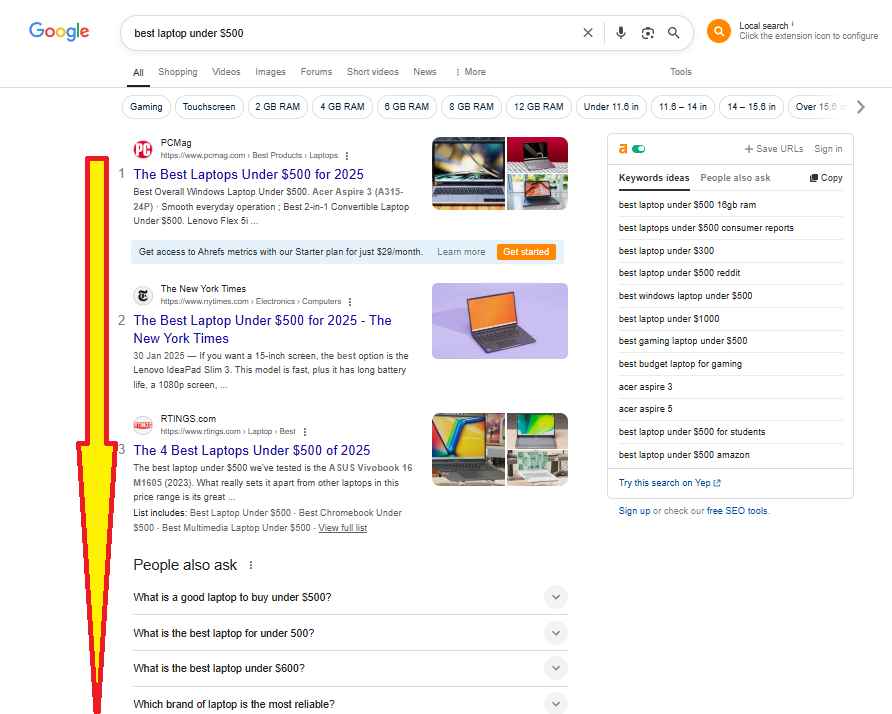
3. Embrace AI and Automation
In the above phrase i have mentioned not to write AI generated article, which i seriously support but here my context is different, copy pasting exaclty what AI has generated is totally wrong, which leads to spam and also plagarsim.
Here what iam trying to expalin you that the below mention tools are here to assist you in providing latest information in any feild. This automation tools will also provide you information from any external source, by adding the same infromaition in the your article leads to spam and plagarsim, which search engines does not support.
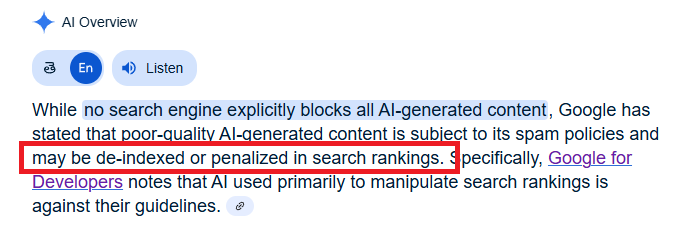
AI tools like ChatGPT, Jasper, Gemini, SurferSEO etc can help you improve your content quality, helping in adding relevant keywords ideas, providing latest update regarding the topic which you are interested to write, it also helps to provide latest stacts which can be beneficial.
I mostly use chatgpt, gemini for knowing latest information according to my topic and later i will delivery article in my own context.
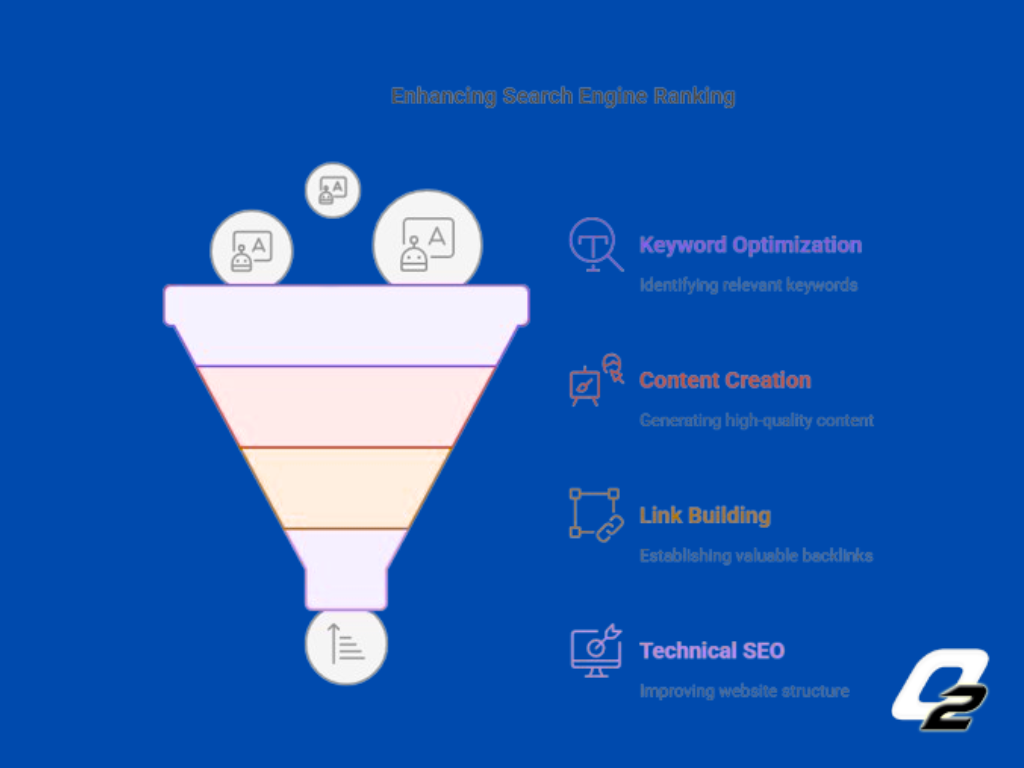
4. Focus on E-E-A-T
E-E-A-T stands for Experience, Expertise, Authoritativeness, and Trustworthiness. These are key principles Google uses to assess your site’s quality.
If you’re writing health content, readers want to know you’re qualified. Add author bios, cite credible sources, and update content regularly. This helps meet Google SEO best practices. For example, a financial blog with advice written by certified professionals will rank better than anonymous sources.

E-E-A-T strongly emphasizes content created by individuals with significant real-world experience in a specific field.
For instance, in the medical field, a blog written by someone with direct medical experience and expertise will naturally possess authority on the subject. Because the content is relevant and backed by genuine experience, search engines are more likely to recognize its trustworthiness and value it accordingly.
If you are interested in learn more about EEAT, visit this link – EEAT
5. Optimize for Mobile-First Indexing
Imagine you’re a movie director. Now you have two versions of the set: a grand, elaborate stage designed for a wide movie screen, and a smaller, more streamlined set built for a smartphone screen.
Nowadays, most of your audience is watching the movie on their phones, so you decide to emphasize the first smartphone set. You’ll make sure that the set looks fantastic, is easy to navigate, and has all the important elements visible on the smaller screen.
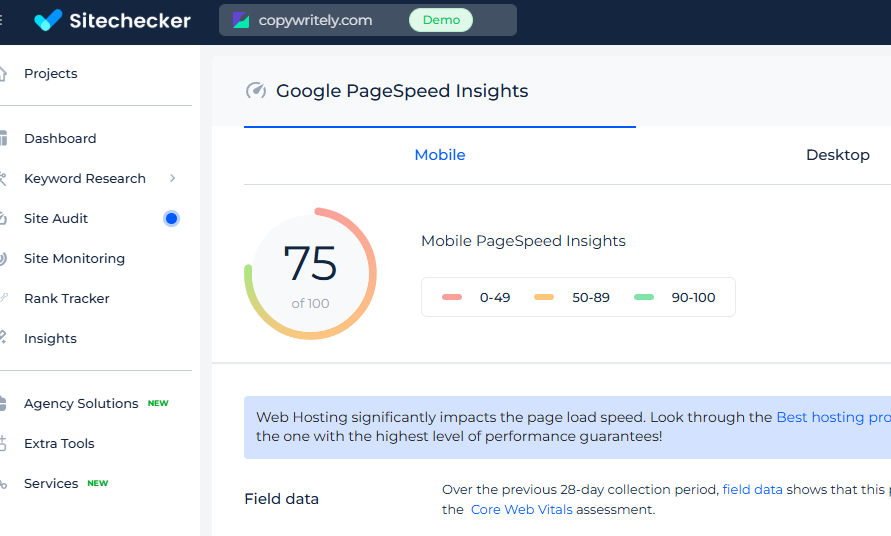
Even if your big stage set is amazing, if the smartphone set is disorganized or missing key features, your audience watching on their phones will have a poor experience or may not be interested in staying due to technical issues. And since most people are watching on phones, that matters most.
Optimization Tips in this new analogy:
- Responsive Design: Try maintaining a layout, size, and design that fits the big and small screens without losing key details.
- Speed Loading: If it takes too long for the scene to appear on their phone, they might get impatient and stop watching. Optimizing images and pages that load quickly on mobile can be clicked.

6. Improve User Experience (UX)
User experience impacts SEO rankings. A clean design, fast loading time, easy navigation, and clear CTAs (calls to action) encourage visitors to stay longer.
Let’s assume, if you are visiting online cloth website and it is taking much time to open and and the images which of clothes are not very clear and does not have “add to cart “button or “shop now“ or “Buy now “option then the user won’t stay on that webstie, he will switch to other store (website) soon.

So, it is very important to maintain a website in a proper manner and provide users a good experience and Google notices.
Use tools like Core Web Vitals and GTmetrix to analyze UX metrics. A better experience leads to lower bounce rates, higher engagement, and better rankings—hallmarks of best website SEO.
7. Build Authoritative Backlinks
Okay, let’s talk about “Backlinks and Link Building“ and why they’re a big deal for how high your website appears in Google search results. Think of it like this:
Imagine different websites are like people, and a backlink is like someone recommending another person.
Why are backlinks so important for Search Engine Ranking?
Think of it as Google trying to figure out which websites are the most popular and trustworthy sources of information on a particular topic. If many other credible websites are linking to yours, it’s like many people are saying, “This website knows what it’s talking about!” ‘
This tells Google that your website is likely a good resource and deserves to rank higher in the search results.That’s why understanding and applying the right link building tips is crucial—because it’s not just about getting links, but getting the right kind of links from trusted sources.
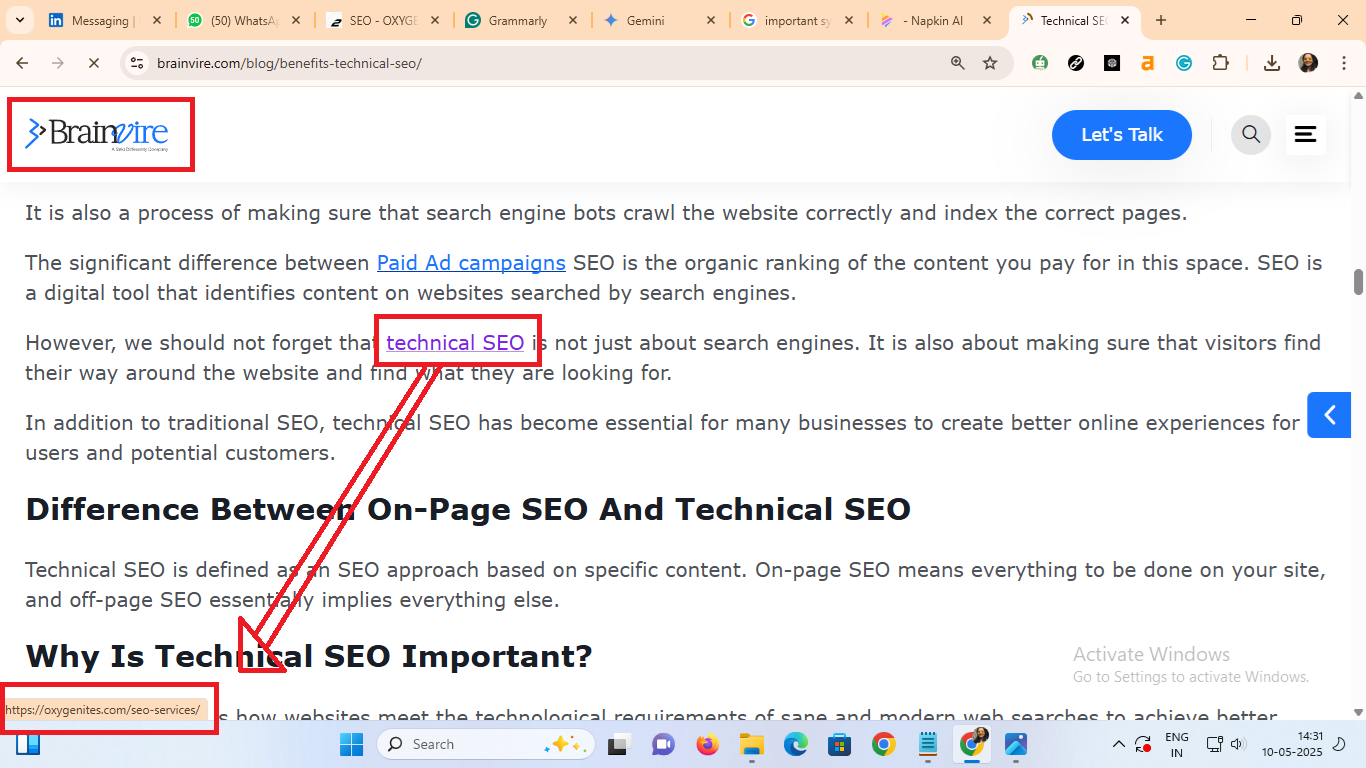
NOTE: Getting backlinks from high-quality and relevant websites is like getting strong recommendations. Strong recommandation will have good impact on search engines.
8. Simplify Your URLS for Better SEO
A well-structured website facilitates better crawling and indexing by search engines. Let’s explain technical SEO and site architecture using a completely different image.
Imagine Google is like a delivery company trying to pick up and deliver packages (your web pages) to people all over the world.
Simple Example:
Think of a big news website. They publish many articles every day. If their website has a clear URL structure (like www.xyznews.com/sports/football/todays-match) and an updated sitemap that tells Google about each new article, it’s much easier for Google to find and index all their stories quickly so people can see them in search results.

In short, Technical SEO and site Architecture are very important for any website to provide users a proper guide to visit which category or the user is looking for, which subject he is interested in.

9. Optimize for Voice and Visual Search
Voice search optimization is now a days trending, most of the website have enable this feature in their website like voice search optimization and voice assistants.
Voice search offers hands-free convenience, especially while driving or cooking. It provides quick answers and streamlines information retrieval, making multitasking easier.

Many updated Divi theme provide this features, you can enable them.
Setting up voice search on your site is usually quick and requires just a few simple adjustments, and then it’s ready for voice commands!
10. Stay Agile with Algorithm Updates
Google updates its algorithms very often, affecting how sites rank. It’s very important to stay updated with google core updates, because following this google algorithm we can stay on top google searches.
It’s vital to stay current by following industry blogs like Search Engine Journal or Moz. If your rankings drop, check tools like Google Search Console to identify issues. Implementing best practices for SEO means being adaptable. Focus on content quality, user experience, and site health to stay ahead. Don’t chase every change—stick to long-term good SEO strategies that align with Google’s core values.
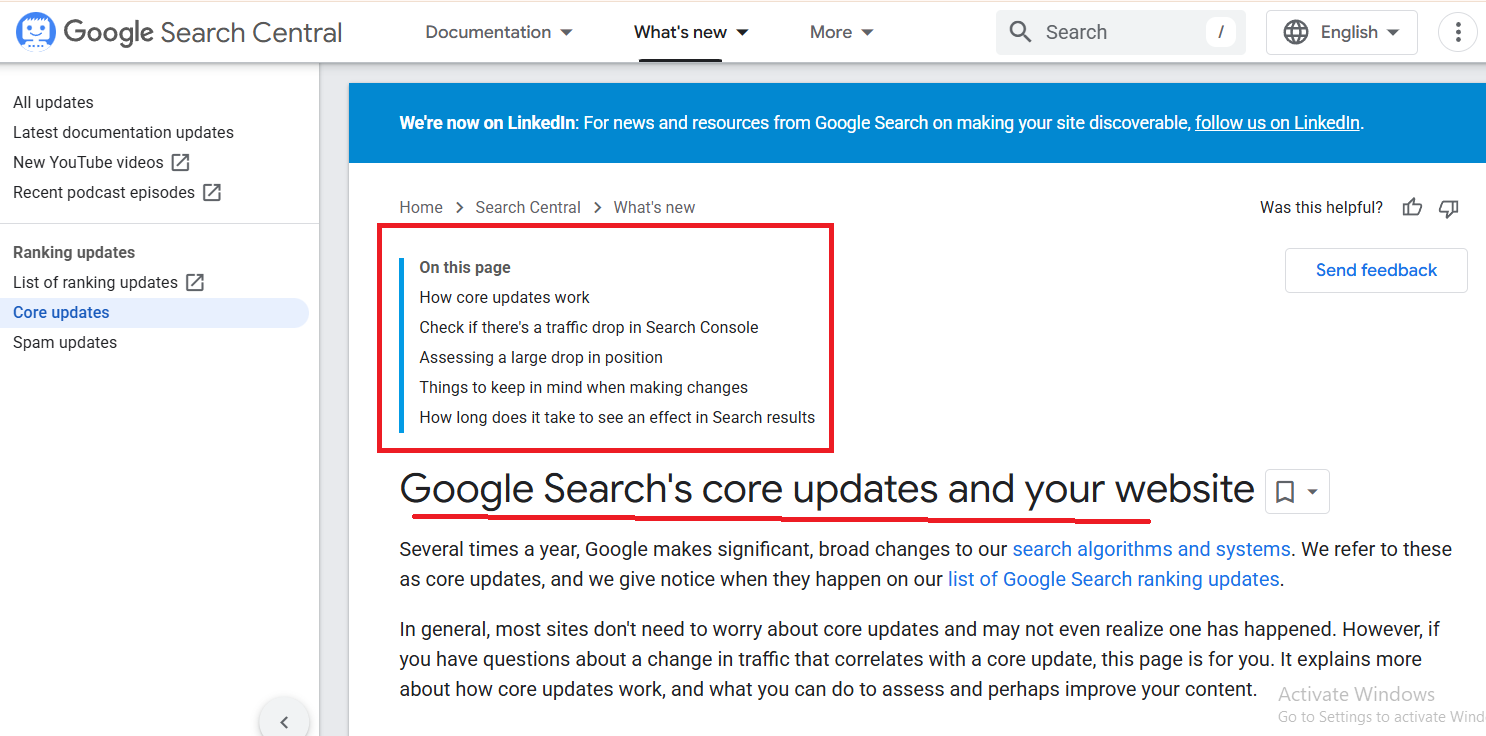
✅ Conclusion
Scaling your SEO rankings needs continously effort and smart ideas. By following above 10 best practices—like focusing on user intent, improving content quality, and staying updated and many more as mentioned above—you’ll not only boost your visibility but also attract the right audience. This is my personal experience which i have tired in my blog writtings. Remember, SEO isn’t just about ranking at once but also staying on that position in long term.
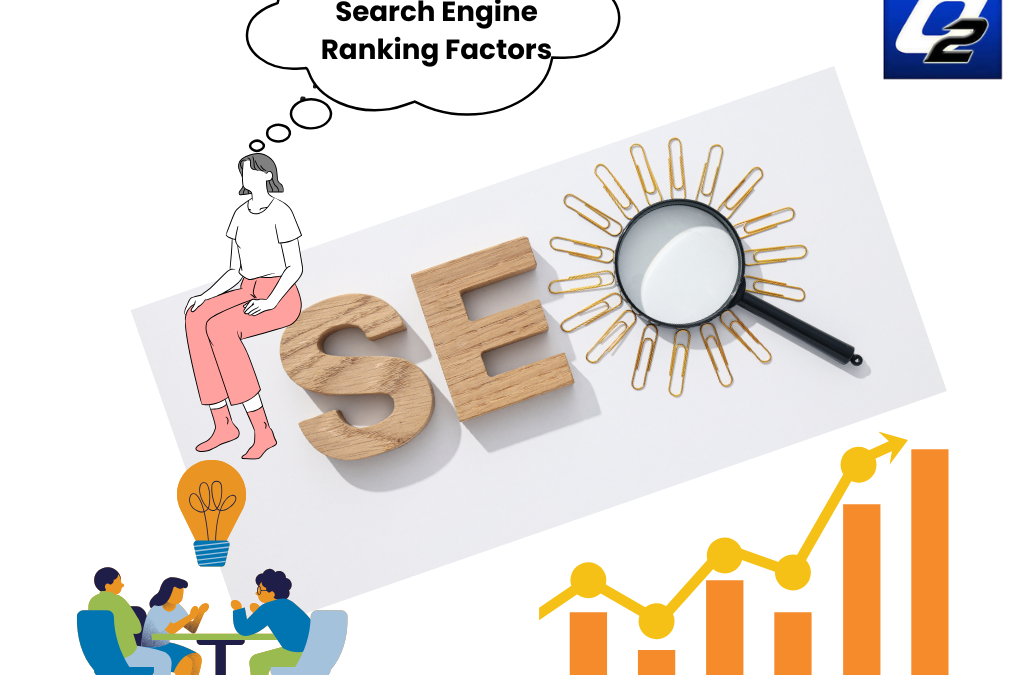
by Shashikanth Heerekar | May 10, 2025 | SEO News, Technology
Acknowledging the key ranking factors that search engines use to index content and how to improve your site’s online performance.
Introduction
Search engine ranking factor helps Google or other search engines determine which websites should be listed top when someone searches for something. The internet has a lot of information, and search engines work hard to find the most helpful answers quickly.
To do this, they look at every page and check for signs that it is good, like easy-to-read content, fast loading speed, working well on phones, and links from other trusted websites. These signs are called ranking factors.
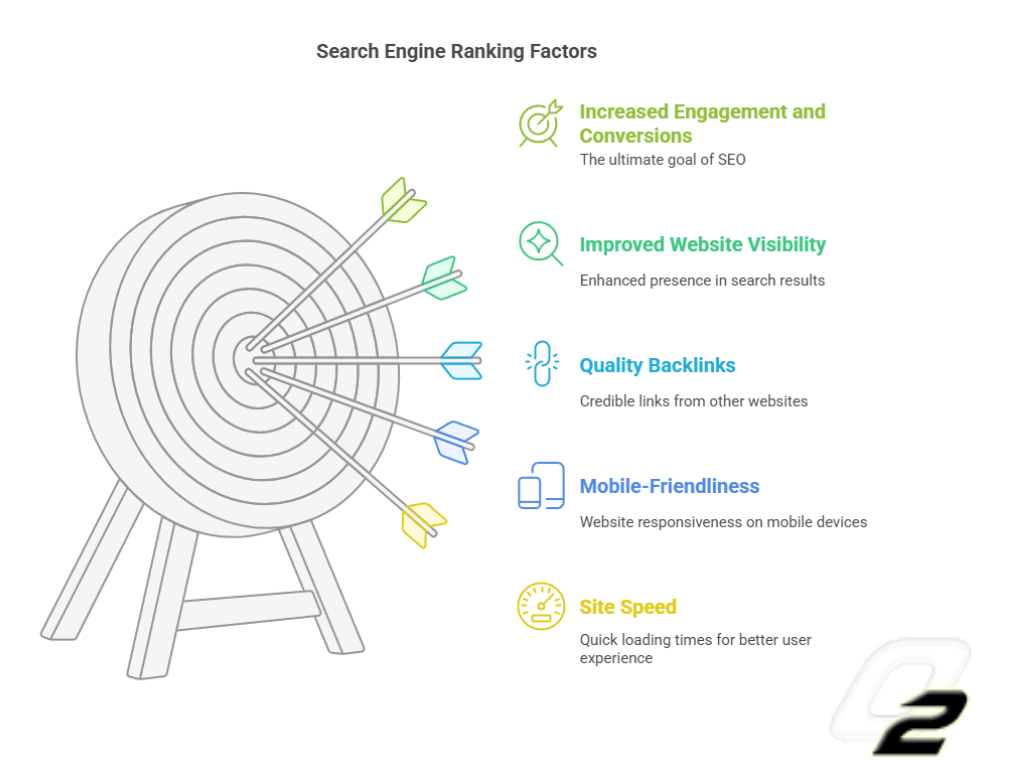
This comprehensive guide delves into the essential ranking factors shaping SEO in 2025, providing actionable insights to optimize your online presence effectively. To better understand this, imagine you’re asking a librarian to help you find the best book about “plant care for beginners.”
The librarian doesn’t randomly pick a book. They look for one that’s well-written, easy to understand, frequently borrowed, and recommended by other gardening experts.
Similarly, when you type the same question into Google, it checks thousands of websites. It picks those that have fresh, detailed, and reliable content, load quickly, look good on mobile, and are linked to by other trusted gardening websites.
If your website is like a helpful, neatly organized, and frequently recommended book in a library, search engines will likely show it to users first. That’s why improving your content, making your website user-friendly, and building a trustworthy online reputation are all important steps in climbing the search rankings.
1. Quality of Content and Applicability
The quality and applicability of content are very important. It is the key factor for any search engine and is considered the first foundation. Google( search engines ) emphasizes the quality of content that delivers value to users and addresses their queries comprehensively and accurately.
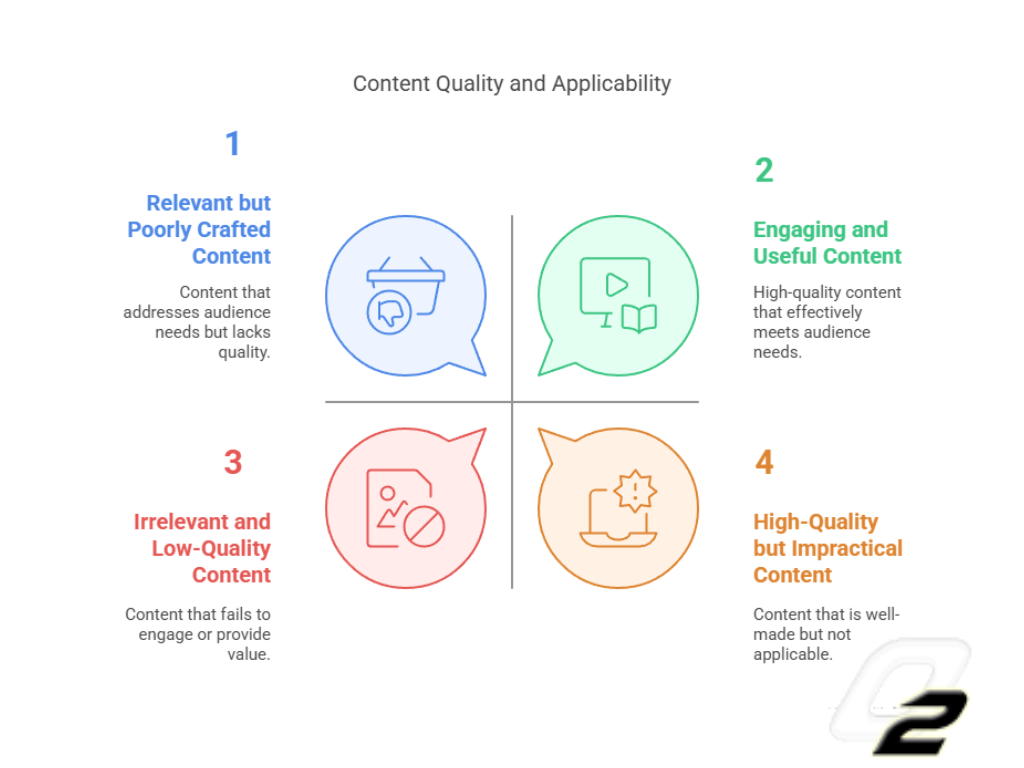
Best methods :
- Complete coverage: Ensure your content fully covers the concept, providing potential questions for users.
- Originality: Create unique content that offers fresh perspectives or information not readily available elsewhere.
- User Engagement: Incorporate engaging elements like images, videos, and interactive features to enhance user experience.
Example: A detailed guide on “Sustainable Living Practices” that includes practical tips, case studies, and expert interviews will likely rank higher than a generic overview lacking depth.
2. E-E-A-T: Experience, Expertise,
Authoritativeness, and Trustworthiness
Let’s break this topic down in a very easy way.
Imagine Google is like a really smart librarian trying to determine if a book is reliable or worth reading for related information.
When it comes to topics related to your health or your money (things they call “Your Money or Your Life” or YMYL), Google makes extra sure the information is top-notch.
That’s where E-E-A-T comes in. It’s like a checklist Google uses to see if the “book” (or website content) is trustworthy:
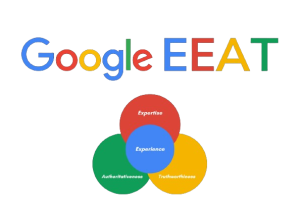
- Experience: The person who wrote this blog does actually know what they’re talking about or what they exactly wanted to deliver? Think of someone who is giving cooking advice, does he actually ever cook?
- Expertise: Does the person have special skills or knowledge in this area? Like a doctor talking about medicine or a mechanic explaining car repairs or SEO expert.
- Authoritativeness: Is this person or website considered a go-to source for this topic by other experts? Are they well-known and respected in their field?
- Trustworthiness: Does the website and the person who wrote it seem honest and reliable? Do they have clear contact information? Do they tell you how they handle your data (privacy policy)?
So, when Google looks at a website, especially about health or money, it pays close attention to these four things.
The sentence then gives an example:
“A financial advice blog authored by certified financial planners, citing authoritative sources like government publications, will establish higher trustworthiness.”

Think of it this way:
- Certified financial planners show expertise (they have the qualifications).
- Citing authoritative sources like government publications shows they’ve done their homework and are backing up their advice with reliable information, which builds trustworthiness and authoritativeness.
Because of these things, Google is more likely to see this blog as a reliable source of financial advice compared to a blog written by someone with no financial background and no sources.
E-E-A-T helps Google ensure you’re getting advice on important topics from people who know their stuff and can be trusted.
3. Mobile-First Indexing
Imagine you’re a movie director. Now you have two versions of the set: a grand, elaborate stage designed for a wide movie screen, and a smaller, more streamlined set built for a smartphone screen.
Nowadays, most of your audience is watching the movie on their phones, so you decide to emphasize the first smartphone set. You’ll make sure that the set looks fantastic, is easy to navigate, and has all the important elements visible on the smaller screen.
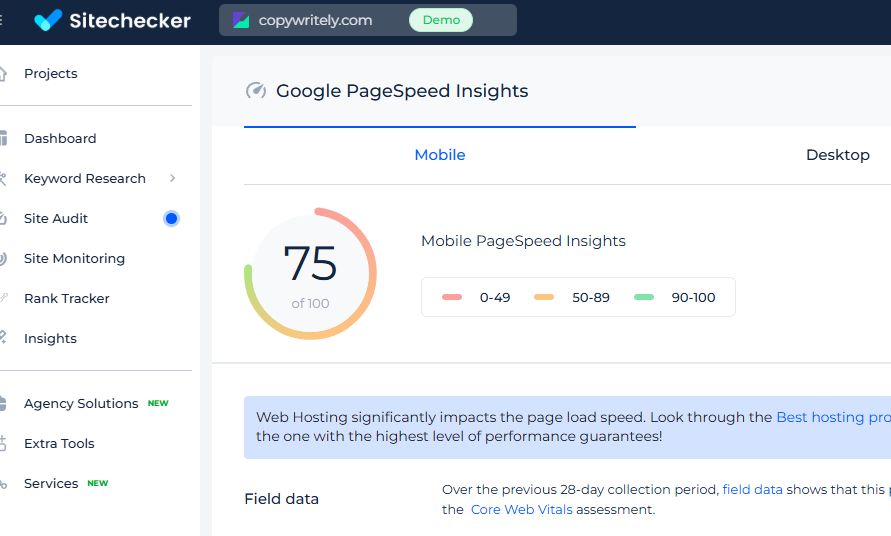
Even if your big stage set is amazing, if the smartphone set is disorganized or missing key features, your audience watching on their phones will have a poor experience or may not be interested in staying due to technical issues. And since most people are watching on phones, that matters most.
Optimization Tips in this new analogy:
- Responsive Design: Try to maintain a layout, size, and design that fits the big and small screens without losing key details.
- Speed Loading: If it takes too long for the scene to appear on their phone, they might get impatient and stop watching. Optimizing images and page which loads quickly on mobile can be click.

Let’s have an easy example:
Imagine you have an online clothing store. You have designed your website in such a way that user unable to open it or it is too much time to open and the images which you have added is not very clear or small in size, the click through button are also palced awkwardly, then the user quickly switch to another clothing store.
The above is an example of the same.
4. Page Experience and Core Web Vitals
Let’s assume you’re visiting a brand new amusement park. Your overall experience is how much you enjoy your entire visit, from the moment you enter until you leave.
In the same way when you entre a new page, google or some other search engine wants to know if people have a smooth and enjoyable time on your website.
Now, within this amusement park, there are a few key rides that Google pays extra attention to, calling them Core Web Vitals. These rides are like the most important parts of your website’s experience:
- Largest Contentful Paint (LCP):
- First Input Delay (FID):
- Cumulative Layout Shift (CLS): The “No Sudden Surprises Ride.”

So, Google looks at these three “rides” (Core Web Vitals)—how fast people can get in, how easy it is to play, and whether they feel stable while doing it—to get a good idea of your overall “amusement park” experience (Page Experience). If these rides are smooth and enjoyable, people will likely have a good time on your website.
5. Backlinks and Link Building
Okay, let’s talk about “Backlinks and Link Building” and why they’re a big deal for how high your website appears in Google search results. Think of it like this:
Imagine different websites are like people, and a backlink is like one person recommending another person.
If a really well-known and respected person (a high-authority website) recommends your website to others by linking to it, it’s like a strong vote of confidence. Google sees these recommendations as important signals that your website has valuable and trustworthy information.
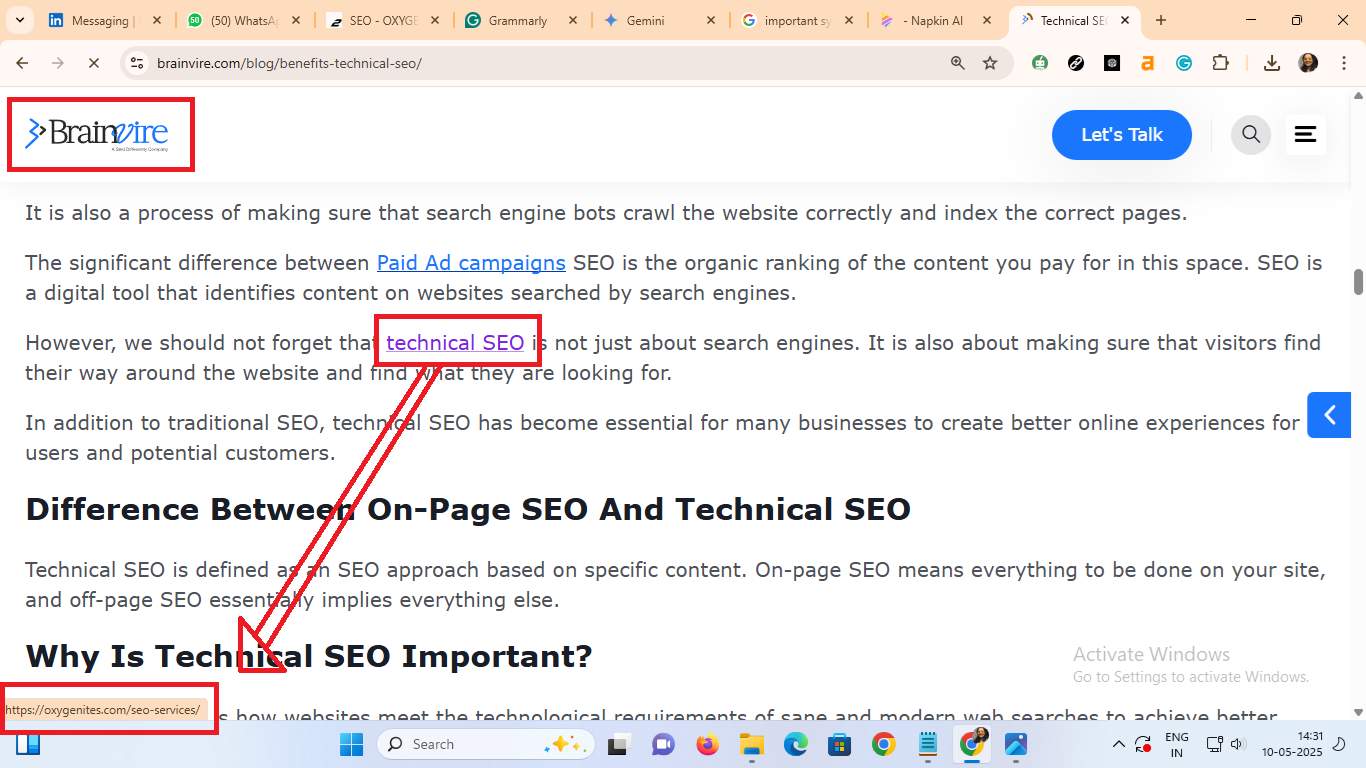
Note: In the above image Brainvire is proveding backlink to oxygen company.
Here’s a simple breakdown:
- Backlink: When another website puts a link on their page that takes you to your website. They say, “Hey, this website has something interesting you should check out!”
- Link Building: The process of getting other websites to link back to yours. It’s like trying to get those respected people to recommend you.
Why are backlinks so important for Search Engine Ranking?
Think of it as Google trying to figure out which websites are the most popular and trustworthy sources of information on a particular topic. If many other credible websites are linking to yours, it’s like many people are saying, “This website knows what it’s talking about!”‘
This tells Google that your website is likely a good resource and deserves to rank higher in the search results.
NOTE: Getting backlinks from high-quality and relevant websites is like getting strong recommendations. Strong recommandation will have good impact on search engines.
6. Technical SEO and Site Architecture
A well-structured website facilitates better crawling and indexing by search engines.Let’s explain technical SEO and site architecture using a completely different image.
Imagine Google is like a delivery company trying to pick up and deliver packages (your web pages) to people all over the world.
Simple Example:
Think of a big news website. They publish many articles every day. If their website has a clear URL structure (like www.xyznews.com/sports/football/todays-match) and an updated sitemap that tells Google about each new article, it’s much easier for Google to find and index all their stories quickly so people can see them in search results.

In short, Technical SEO and site Architecture are very important for any website to provide users a proper guide to visit which category or the user is looking for, which subject he is interested in.

7. On-Page SEO Optimisation
Optimizing individual pages enhances their visibility in search results. On-page seo includes title tags, meta description, keywords and Header tags like (H1, H2, H3, and H4).
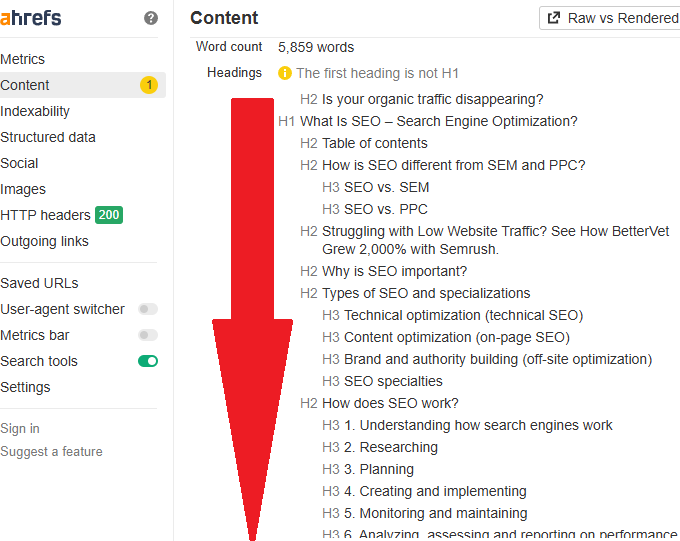
Think of a webpage like a helpful sign:
- Clear Heading: Tells you exactly what’s there.
- Short Description: Makes you want to read more.
- Organized Subheadings: Help you find what you need quickly.
8. User Engagement Signals
User behaviour metrics influence search rankings. CTR, Bounce rate and Dwell time this are some of the examples that i have tried, and the results are just great.

You can also use tutorial videos and images, which also help in the branding of your website.
9. Voice Search Optimization
Voice search optimization is now a days trending, most of the website have enable this feature in their website like voice search optimization and voice assistants.
Voice search offers hands-free convenience, especially while driving or cooking. It provides quick answers and streamlines information retrieval, making multitasking easier.

Many updated Divi theme provide this features, you can enable them.
Setting up voice search on your site is usually quick and requires just a few simple adjustments, and then it’s ready for voice commands!
Conclusion
A multidimensional strategy is needed to stay ahead of the curve in SEO, emphasizing user involvement, technological optimization, content quality, and flexibility in response to new trends.
You may improve your website’s visibility and attain long-term success in search engine rankings by placing the methods described in this tutorial into practice.
FAQ
FAQ 1: What is the most important ranking factor in SEO?
Content quality remains the most critical ranking factor. Search engine like (Google) sort fully infromative article, explained detailed, and provides relevant content that answers users’ queries.
FAQ 2: Should often we need to update my website content?
Updating website content in every 3 months is very important as it helps the users to update with latest or updated information. It also helps search engine to climb blog on top the searches and also improving your ranking in search. I personally recommand that updating the content is very important to stay top on search engines.
FAQ 3: Does optimizing for mobile affect search engine rankings?
It’s true that mobile optimization is essential. The mobile version of your website directly impacts rankings due to Google’s mobile-first indexing. Fast loading times, responsive designs, and easy-to-use navigation improve SEO performance and the mobile user experience.
FAQ 4: How do backlinks help in SEO?
Backlinks function like other websites’ endorsements. Search engines are alerted to the legitimacy of your material when reputable websites link to it. Quality backlinks improve your domain authority and can significantly enhance your visibility in search results.
FAQ 5: What is Google RankBrain, and why does it matter?
Google RankBrain is an AI system that helps process search queries. It evaluates how users interact with results, focusing on relevance and satisfaction. Optimizing for user intent and engagement ensures better alignment with RankBrain’s ranking logic.

by Shashikanth Heerekar | May 7, 2025 | All Things about Marketing, SEO News, Tutorial and Case Studies, Uncategorized
–Unlock real-world strategies to help you rise above competitors and attract more clicks through better search placement.
What is search engine positioning?
Imagine you’ve written a brilliant article and published it on your website. But what good is that article if it’s hidden on the 15th position of Google’s search results? That’s where search engine positioning comes into play. It refers to your webpage’s exact placement in search engine outcome pages (SERPS) for a specific keyword.
Unlike general SEO, which encompasses the entire strategy to improve visibility, positioning focuses purely on where a page lands. Let’s say your webpage is ranking #4 for “eco-friendly gardening tools.” Your aim isn’t just to remain in that position but to climb to the top three, or even number one. That upward movement—that specific target—is your positioning goal.
Search engine positioning versus SEO
While both serve the same overarching aim—visibility—they approach it from different angles. SEO (Search Engine Optimisation) is a broad umbrella that includes technical SEO, on-page optimisation, backlinks, content creation, mobile responsiveness, and page speed.
Search engine positioning drills down into ranking refinement. It answers questions like:
- Which of my pages ranks where?
- For which keywords?
- How can I move Page X from position 8 to position 3?
SEO builds the roads, positioning directs the traffic.
Let’s look at an example of what a positioning strategy might try to accomplish:
Imagine you have a blog post titled “The Best Organic Skincare for Summer.” It ranks 9th on Google for the keyword “organic summer skincare.”
A positioning strategy might include:
- Updating the blog with new statistics and trends for 2025
- Enhancing keyword usage in headers and alt text
- Adding internal links from top-performing skincare blogs
- Resharing it on social media with a new visual
These steps aim to nudge that blog closer to the coveted top three slots.
Note : In the below given image blogs ranks on top of searches only because of updated or revised content, search engine works and crawl everyday.

How does a search engine determine a page’s position?
Google and other engines use a multitude of signals to rank content:
- Relevance to the search query (keywords in titles, meta, body text)
- Authority (backlinks from credible domains)
- Freshness (how recently it was published or updated)
- User experience (bounce rate, dwell time, site speed)
Each element contributes to your page’s positioning score, an invisible metric determining its SERP placement.
Note : The below image is an example for my above context

Every factor – relevance, authority, freshness – plays a role in where a page lands in the results. One proven way to influence that is through high-quality, niche-relevant backlinks pointing to your most important BOFU pages. Agencies like linkbuilding.company specialise in this, often using multiple guest posts on the same topic across hyper-relevant sites to “hack” the SERPs for best “product” keywords. This approach doesn’t just move rankings – it can also push your content into AI search results from tools like ChatGPT and Perplexity, giving your brand visibility with buyers before they even open a browser. When you own those BOFU positions, the impact on leads, sales, and ROI is immediate.
Why is search engine positioning important?
The digital realm is a battleground. Thousands of pages may be competing for the same keyword. But only the top few see meaningful traffic. According to recent data, the first three results on Google capture over 60% of clicks.
If your page is ranking 6th or lower, you’re practically invisible.
Strong search engine positioning means:
- Higher visibility
- Increased organic traffic
- Greater brand trust and authority
- More conversions without paying for ads
Positioning is the silent salesman of your content strategy—quietly pushing your message to the front of the line.
Is their any possiblities to improve your search engine positioning?
There’s no silver bullet, but there are targeted techniques that can significantly improve your SERP positioning.
Tip No. 1: Update the content in question and reshare it on social media
Updating your content’s performance is one of the most effective ways to revive it. Search engines promote content that appears fresh and regularly maintained. Even small changes—like correcting outdated facts, refreshing statistics, or adjusting the year—can improve its relevance and visibility. For example, if you had a post titled “Digital Marketing Trends in 2023,” to which you have updated it to “Digital Marketing Trends in 2025” with recent data and insights can significantly boost its SEO performance.
These latest changes in the post alert search engines that the content is latest, unique and trustworthy, which can help improve rankings and increase organic traffic from users seeking the latest information.
Note : The below is the example of above said phrases.
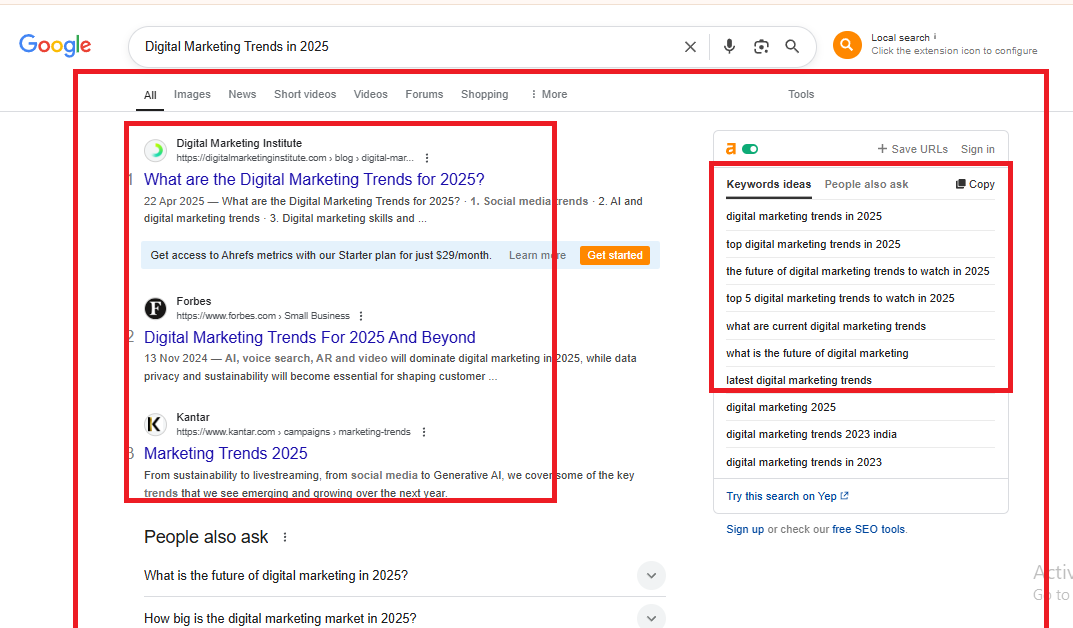
Besides updating factual details, check for outdated visuals and links that may no longer function or appear relevant. Substituting old screen grabs to new, adding new internal linking, and or else including new sections or FAQS can drastically enhance the user experience.
For example, if your snap included a screenshot of an old snap interface, replacing it with a 2025 version showing the latest feature, like in-app shopping insights, can make your content feel more relevant and polished. Additionally, adding a new section, “How Instagram’s AI tools are changing content engagement”, will align your article with evolving user interests and search trends.
Once your content is updated, reshare it across your social channels to attract new attention. Don’t just post the same caption—introduce the content with a fresh hook, headline, or teaser highlighting what’s new. For example, if your article now includes updates about LinkedIn’s 2025 content algorithm changes, your post could say: “New Update: Learn how LinkedIn’s algorithm shift is changing B2B marketing this year!”
Pair this with a relevant image—either a new screenshot of the LinkedIn dashboard or a custom graphic summarising the changes. You can use a free screenshot editor to annotate, crop, or enhance the image before sharing it.
You can create such visuals using tools like Visme and Canva or source professional stock images from sites like Unsplash or Pexels. Add alt text with descriptive keywords when uploading images to improve SEO and accessibility.
Note : Updated article will perform in best possibilites compare with old content, the below is the set of example which has personally happen to me.
After updating my artcile my keywords are suddenly got ranked within 24 hours of time.
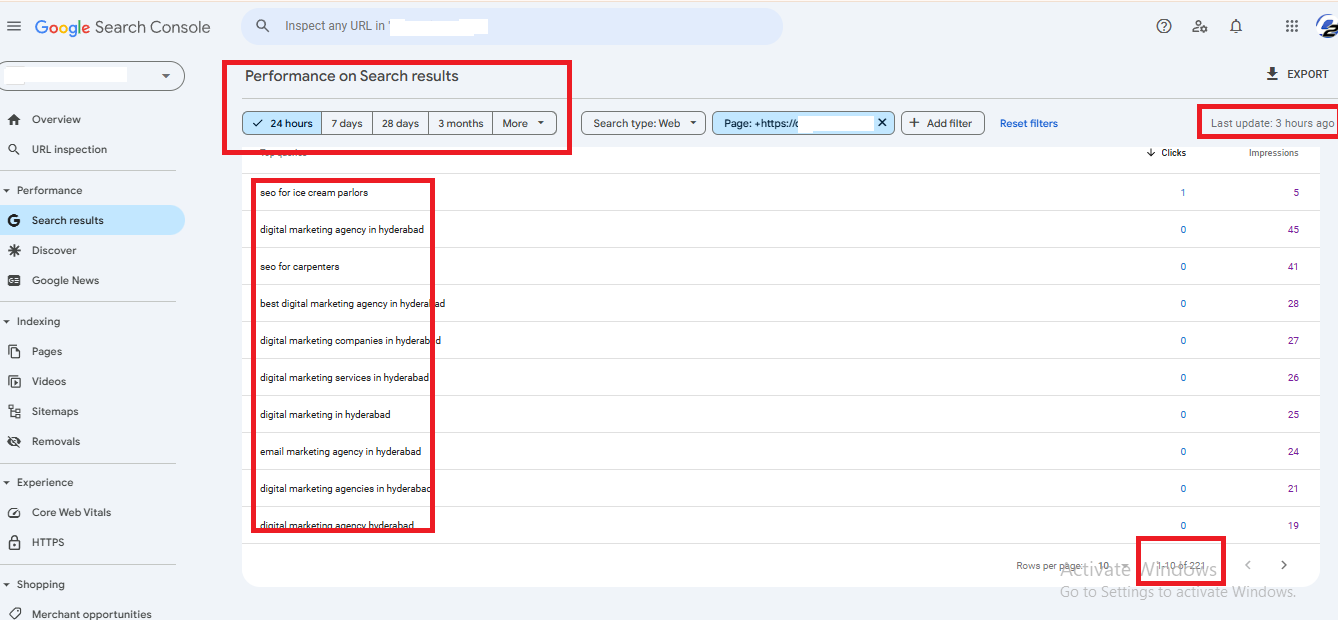
Tip No. 2: Re-optimize meta tags and meta descriptions for top key phrases
In today’s content landscape, AI-powered writing tools are transforming how marketers refine their pages for search intent and readability. These tools not only assist in crafting well-structured, engaging content but also ensure it aligns with search algorithms’ evolving understanding of quality. Using an all-in-one AI writing assistant can help you humanize your tone, enhance meta descriptions, and make every update feel more natural to both readers and search engines.
Another powerful way to refresh old content and improve visibility is by re-optimizing your meta tags and meta descriptions using current top-performing keywords. Meta titles and descriptions are a summary for search engines and users, directly influencing click-through rates. Over time, keyword trends change, so revisiting these elements to ensure they align with how people search today is essential.
For example, if your article originally targeted “digital marketing techniques,” but data now shows “AI-driven digital marketing strategies” as a rising phrase, updating your meta title and description to reflect that change can boost your ranking and draw more qualified traffic.
When re-optimizing, focus on including the primary keyword at the beginning of the meta title while keeping the title within 60 characters. For the meta description, aim for a compelling summary of 150–160 characters that includes the main keyword and a clear value proposition.
For example, instead of a non-specific meta description like “Learn about digital marketing,” you might phrase “Explore top AI-driven digital marketing strategies for 2025 to boost ROI and stay ahead of trends.”
This enhances your overall Meaning of search engine optimisation performance and encourages users to click by aligning with their needs and search intent through updated, engaging language. After updating your meta tags, promote your refreshed content with a visual post or infographic to strengthen your search engine optimization strategy.
For example, create a side-by-side graphic showing the old and new meta descriptions, or an image summarising the updated keyword focus like “Now targeting: AI-driven marketing.” Use free tools like Canva to design a clean, branded image and choose icons or illustrations related to SEO or keyword research.
Add relevant alt text, such as “Updated SEO meta description example for 2025”, to help search engines understand the image context. Sharing this on social media can also educate your audience while boosting your content’s exposure.
Tip No. 3: Change and retify your internal linking strategy
Internal linking is a smart and scalable way to increase SEO strength. Interlinking is the best strategy to interlink your post that has low traffic or is not performing well on Google. To that article, you can interlink with an article that is performing very well on search engines. In this strategy, you can direct the readers to go to the order blog post, which also provides you with quality information.
Okay, imagine your website is like a library.
Internal linking is like putting signs inside the library pointing to other related books. Helping lower-ranked pages: If you have a popular book (high-ranking page), and you put a sign in it that says “For more information, check out this book on a similar topic” (linking to a lower-ranking page), it helps people (and search engines) discover that other book.
Easy for search engines: These signs also help the librarian (search engine) easily find and organize all the books in your library.
Better SEO: More signs pointing to relevant books make your whole library look more organized and helpful to the librarian.
A good internal linking strategy doesn’t mean stuffing links randomly—it should feel natural and provide added value to the reader. Use descriptive anchor text that tells users what they can expect by clicking. For instance, instead of “click here,” you can say, “check out our detailed guide on AI-powered email tools.”
Periodically review old blog posts and add links to your newer, high-performing content. This keeps your pages interconnected and up to date, which helps both users and search engines discover more of your content, improving crawlability and user engagement metrics like time on site.
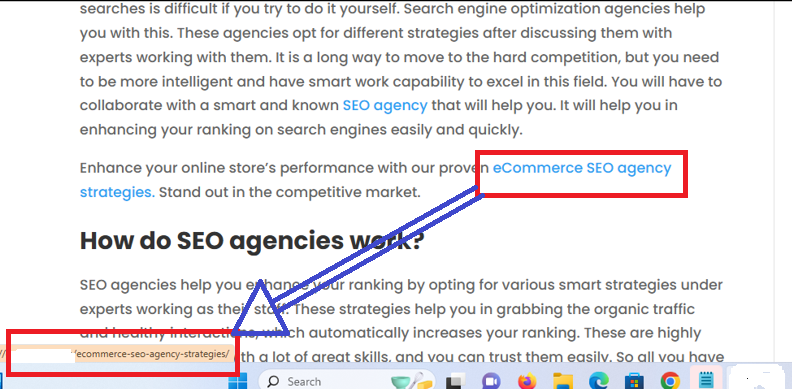
Note : In the above image which clearly shows, how interlinking is going to work. Interlinking is nothing but a road map, for not only users but also to the search engines.
Tip No. 4: Add or change the page’s featured image
A compelling featured image can significantly attract clicks and shares, especially when promoting your content on social media or appearing in search previews. Using a good logo maker to incorporate consistent branding elements into the image can boost recognition and trust. Refreshing the featured image is a quick and visual way to signal new value in your content.
For example, if your original blog post on “Top SEO Tools” had a generic stock image from 2020, replacing it with a modern, eye-catching graphic showing logos of the latest tools in 2025, like Surfer SEO or NeuronWriter, can instantly boost user interest and credibility.
For example, you are having a cake bakery and the featured image is related to a shoe brand, uhh, this is not going to work right?
Avoid outdated visuals or overly generic images; aim for clean, branded designs or helpful infographics. Tools like Canva allow you to quickly design a new featured image incorporating bold text, icons, and brand colours.
When updating your image, remember to optimize it for search engines. Rename the image file with relevant keywords (e.g., “seo-tools-2025-featured.jpg”) and use alt text like “Top SEO tools of 2025: Its summary.” This helps with both accessibility and image-based search traffic. Re-uploading a new featured image allows for resharing the content across platforms with a fresh look.

Note : The above image is seriously a funny miskate, the caption is no were realted to image.
Uhh!!! Avoid this kind of mistakes. The image should be excatly related to the topic what you are delivering or what is your intent.
Tip No. 5: Try to use the new content proposal as needed
It is very crucial to understand that experiment with new content proposal when needed should be to the point and engaging. Audiences and algorithms evolve, and sticking to the same format may cause even valuable content to lose traction over time.
Trying different formats—like converting a text-heavy blog post into a listicle, infographic, video, or podcast transcript—can bring new life to the same topic. For example, if your post “Top LinkedIn Marketing Strategies” isn’t performing well, you might repackage it into a carousel-style visual post or a step-by-step video guide.
New content arrangement don’t just improve your ranking but it may open doors to broader SEO opportunities. Google unroll search results often favour diverse media formats like video snippets, FAQS, and how-to guides.
NOTE : The image shows how FAQ’S or PEOPLE ALSO ASK, is very much important in writing a blog post. REMEMBER !!!!

Embedding a video summary, adding a downloadable checklist, or including an expert quote box can enrich the content and appeal to different learning styles. For example, if your blog is about “How to make instagram business account,” try embedding a short video demo using a planning tool like Buffer or Hootsuite.
This improves user experience and makes your content eligible for more search features like rich results and video previews.
Adding videos related to content is also very much important, you can have a look over below.
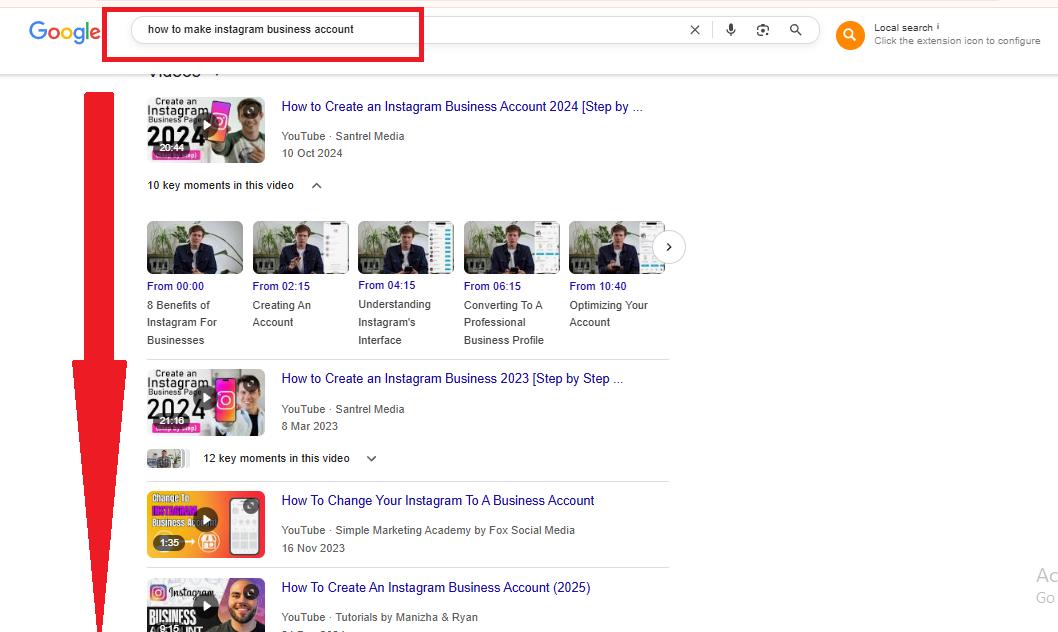
Recommended Reading
Google’s New Update: Performance Data by the Hour
Google now provides hourly data on how pages perform. Use this to:
- Schedule posts during peak activity
- Identify content that performs better in specific timeframes
- Experiment with dayparting in content campaigns
Google’s March 2025 Core Update: What You Need To Know
This update emphasized:
- Topical authority
- Better contextual linking
- Content depth over keyword repetition
Pages that went deep and answered complex queries holistically saw ranking boosts.
A timeline visual showing the evolution of Google algorithm updates from 2020 to 2025.
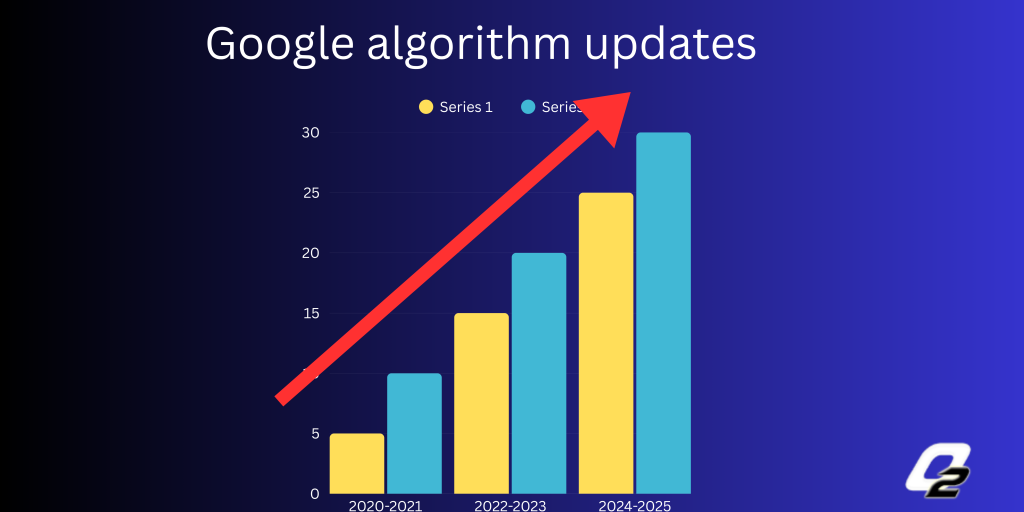
Conclusion
Search engine positioning in 2025 is not a hack—it’s a methodical pursuit of digital dominance. You’re no longer just creating content for its own sake. You’re curating, optimizing, linking, and evolving.
To outpace the competition:
- Track your SERP position monthly
- Update content biannually or sooner
- Link smartly from within
- Test new formats
It’s not about gaming the algorithm; it’s about becoming worthy of the top spot.
(FAQS)
❓ What’s the difference between search engine positioning and SEO?
SEO is broad and involves all activities to improve visibility. Positioning focuses on where your page ranks for specific queries—and how to move it higher.
❓ How long does it take to improve search engine positioning?
Changes can reflect in 1–6 weeks, depending on your domain strength and the intensity of your efforts.
❓ Does internal linking help boost rankings?
Yes. It improves crawlability, authority flow, and user engagement.
Think of it as signs in a library that guide readers to other books they might enjoy.
❓ Should I update old content or create new content?
Both. Update old content to maintain relevance. Create new content to capture emerging queries.
❓ What tools can help track search engine positioning?
Use:
- SEMrush
- Ahrefs
- Google Search Console
- Serpstat
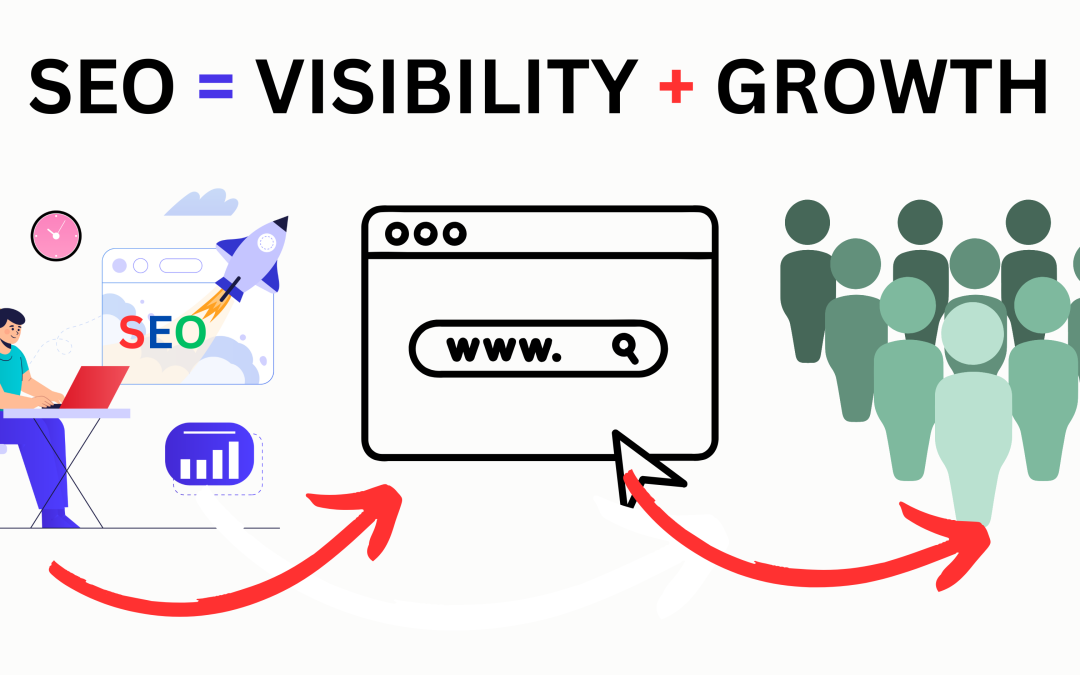
by Shashikanth Heerekar | May 6, 2025 | All Things about Marketing, SEO News, Technology
What Is SEO? Discover how SEO helps websites rank on Google. Here are easy tips for beginners to understand and apply SEO fast! Start learning now!
What is SEO (Search Engine Optimization)?
Search Engine Optimization, or SEO, is a method of improving a website’s visibility in search engine results pages (SERPs). It involves techniques and creative strategies to improve rankings, attract organic traffic, and increase the quality and quantity of visitors.
In other words, SEO services is also about increasing the standard and total website traffic. As you improve your position in search engines, you’ll likely get more visitors who may be engaged in your website, its products, or its content.
For the best explanation, we can use a real example. For instance, if you search for the term ‘best AC service providers’ on Google, Google will show you the top-ranking website for your keyword. Google shows these results for free, and the number of visitors coming through this is called organic traffic.
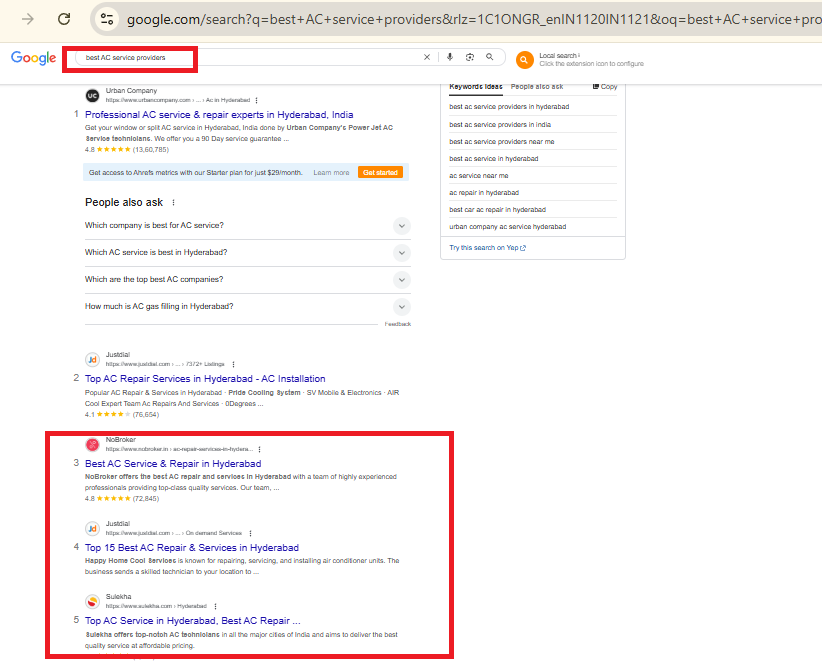
Why is SEO Important?
Catering to a Huge Audience
Most online approaches begin with a search engine. Ranking high means visibility in front of a wide, global audience actively searching for your products or services.
Low Cost of Implementation
Compared to paid advertising, SEO is cost-effective in the long run. You pay with time and effort upfront, but you can enjoy consistent traffic once you rank.
Staying Ahead of the Competition
Your competitors are investing in SEO. If you don’t, you’re handing them an advantage. SEO helps you stay relevant and ahead in a competitive online landscape.
Enhance User Experience
Good SEO practices improve user experience. You can please Google and your visitors by offering fast load speeds, mobile optimization, and easy navigation.
Builds Trust and Credibility
Sites that rank well are considered more trustworthy by users. Authority backlinks, quality content, and user-friendly design contribute to your reputation.
Data and Analysis
SEO provides valuable insight into user behaviour through tools like Google Analytics, Search Console, and Heatmaps.
How Does a Search Engine Work?
Search engine tools like Ecosia, Bing, StartPage, Google and DuckDuckGo are important systems that help users find accurate information quickly with accuracy. They follow a multi-step process that includes crawling, indexing, and ranking. Let’s break it down:
Crawling
Crawling is the first step in the process. Search engines send out automated bots known as crawlers or spiders to discover content across the web. These bots move from one page to another via links, collecting information such as:
- Page titles
- Meta tags
- Image alt texts
- Content structure
- Internal and external links
Search engines start with a known list of URLs (called a seed list) and, crawl those pages, then follow hyperlinks on those pages to discover new content. Crawling helps search engines discover which websites exist and what they contain.
✅ Example: Googlebot is Google’s main crawler. It continuously explores the internet, discovering new content and re-crawling updated pages. In the below as you can see, google has crawled and index your post.

Indexing
Once the content is crawled, it needs to be understood and stored. This process is called indexing. The data collected by crawlers is organized and added to the search engine’s massive index — essentially a digital library of all known web pages.
During indexing, search engines analyze:
- Page content and topic
- Keywords and keyword context
- The freshness of the content
- Multimedia content like images or videos
- Page structure (HTML, headings, schema, etc.)
Search engines also use semantic indexing, which helps them understand the exact keyword and its context and intent.
⚠️ Note: If your page is not indexed, it won’t appear in search results — even if it’s well-designed or keyword-optimized. In the below image page is not index.
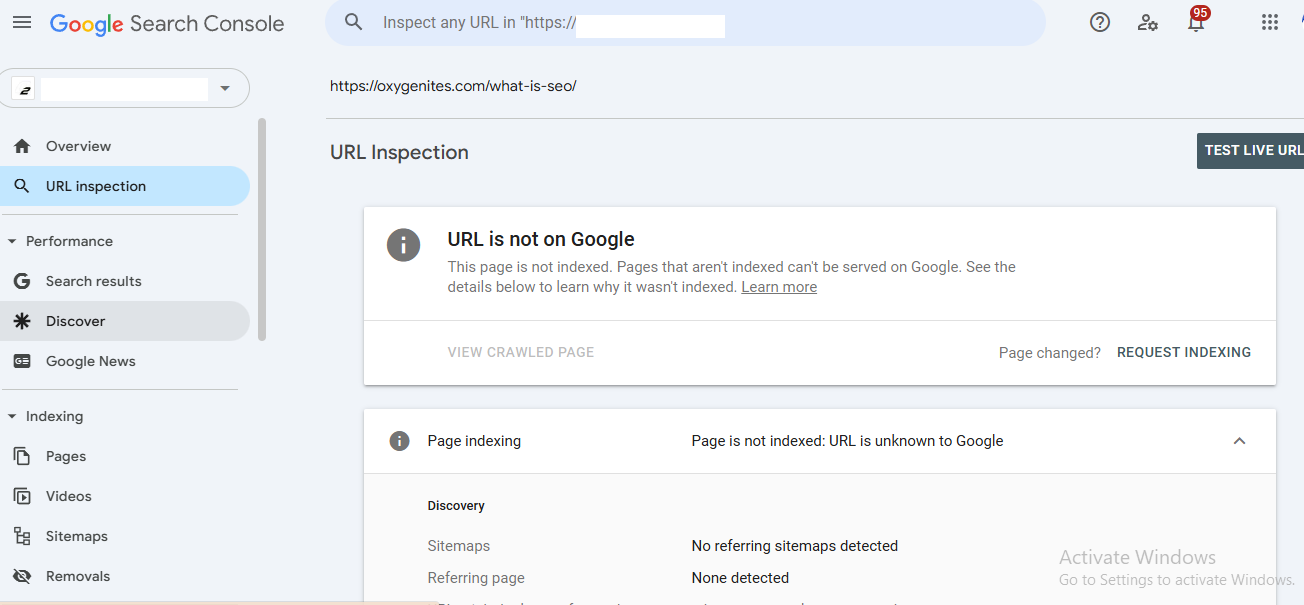
Ranking
When a user search a query into a search engine, it searches its index to find the most relevant pages. This is where the ranking algorithm comes into play.
The algorithm uses hundreds of ranking signals (Google has over 200) to evaluate and sort results. Tops of the most important ranking factors include:
- Keyword relevance
- Page authority (backlinks)
- Mobile-friendliness
- Page load speed
- Secure connection (HTTPS)
- User engagement signals (click-through rates, dwell time)
- Content quality and originality
Search engines try to match the user intent (informational, navigational, or transactional) with the most helpful and trustworthy pages. The goal is to show the best possible answer at the top of the search results.
How Do Search Engines Find Your Pages?
This tool helps you send a request to Google to crawl your website. You can also submit sitemaps for your site and monitor the number of submitted pages added to Google’s index and other details.
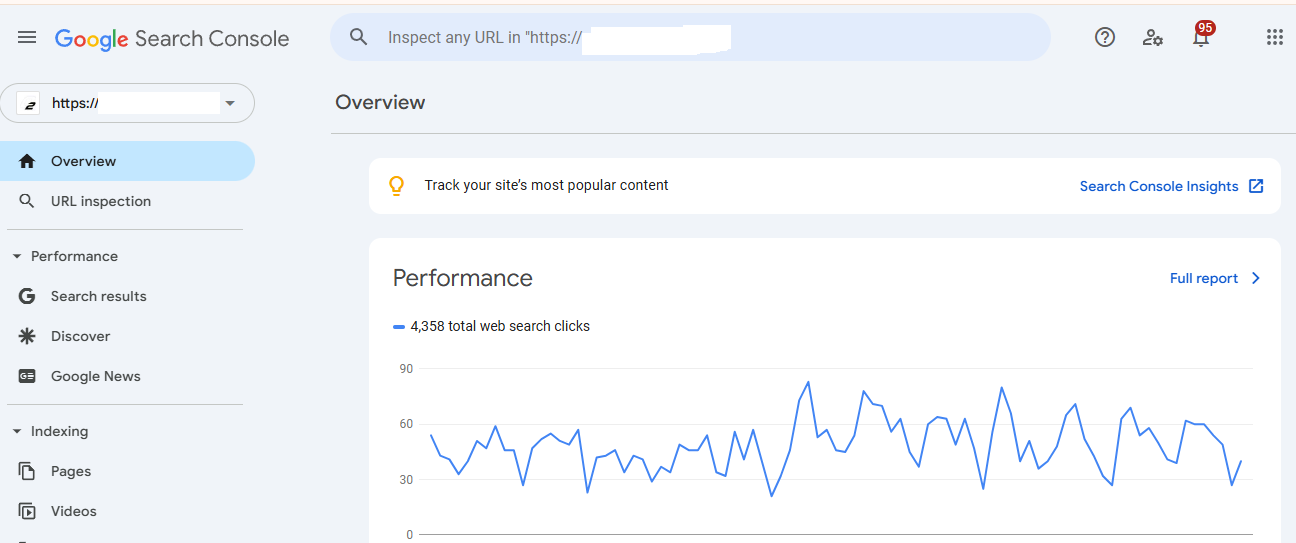
Why Sites Don’t Show Up in Search Results?
- Noindex tag present
- Poor content quality
- Blocked by robots.txt
- Lack of backlinks
- Penalty from algorithm updates
What is the Search Engine Algorithm?
Search engines use algorithms to decide the most relevant results for a query.
i. Analyze User Query
Search engines try to explain the intent behind a search query (informational, transactional, or navigational).
ii. Finding Matching Pages
The engine matches the query with indexed pages based on keywords, relevance, and authority.
Why Search Engines Sometimes Display Faulty/No Results?
This happens when the content doesn’t match user intent, is poorly optimized, or lacks authority.
How SEO Works?
SEO works by optimizing various website elements so search engines can explain their relevance and value to user queries. It starts with identifying what people are searching for—using keyword research—and then tailoring your website’s content, structure, and technical setup to target those search terms. By doing this, search engines are more likely to rank your pages higher, bringing in more organic traffic.
For example, run a bakery in Delhi and optimize your site with keywords like “best cakes in Delhi.“ Add quality content about your products, fast loading speed and mobile-friendliness. Google will find your site more valuable for people searching those terms. Over time, you may appear on the first page, attracting customers without paying for ads.
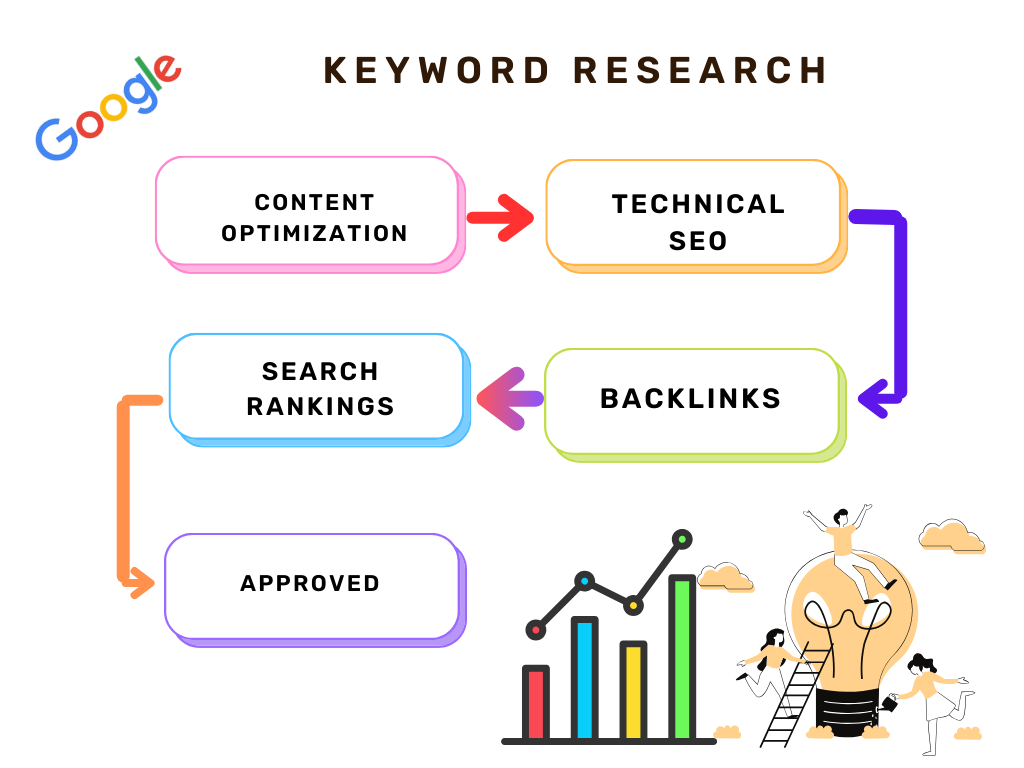
What are the Major Types of SEO?
On-Page SEO
Why is On-Page SEO Important?
It verifies that search engines recognize the content of your pages and rank them appropriately.
What are the Most Important On-Page Ranking Factors?
i) Title Tag Optimization
Use clear, concise titles with the primary keyword near the beginning.
ii) Meta Keywords and Meta Descriptions
Though meta keywords are outdated, a well-written meta description can increase CTR.
iii) Heading Tags
Organize content using H1, H2, H3 and H4 tags appropriately.
iv) Image Optimization and Interactive Media
Use alt text and descriptive file names, and reduce image size.
v) Engaging Content
Content should be unique, relevant, and answer the searcher’s query.
vi) Internal & External Links
Use links to guide users and spread link equity.
vii) Handle Duplicate Content
Use canonical tags and avoid duplicate pages to ensure search engines rank the correct version.
2. Technical SEO
Why is Technical SEO Important?
It provides that search engines can crawl, index, and rank your site effectively.
Technical SEO Best Practices
i) Website Speed
Improve loading times using caching, compression, and fast servers.
ii) Mobile-Friendliness
Responsive design is now a ranking factor. Use Google’s Mobile-Friendly Test.
iii) Site Architecture
Structure your site with a clear hierarchy and use breadcrumb navigation.
iv) Security
Use HTTPS to encrypt data and increase trust.
v) Structured Data Markup
Use schema to enhance search appearance with rich snippets.
vi) Create an XML Sitemap
The below given is an example of XML Site map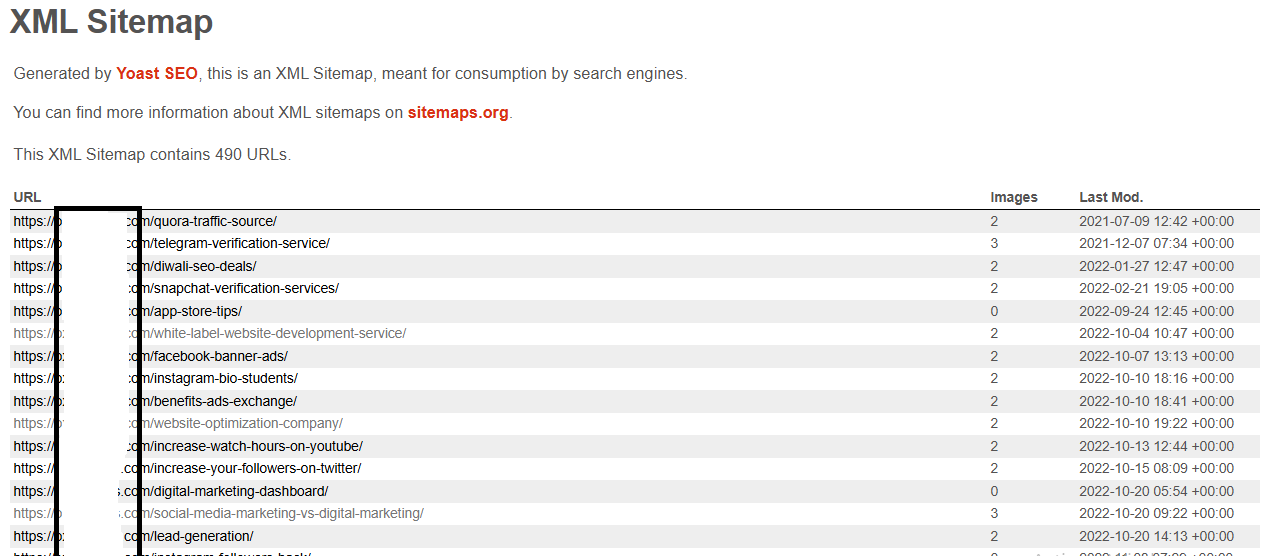 3. Off-Page SEO
3. Off-Page SEO
Why is Off-Page SEO Important?
It builds your site’s authority and trustworthiness.
Off-page Optimization Techniques
i) Quality Inbound Links
Get backlinks from sites with high domain authority(DA).
ii) Social Media Marketing
Share your content or blogs on social media platforms to increase visibility and backlinks.
iii) Content Marketing
Produce high-value blog posts, infographics, and videos.
iv) Localization and Citations
Ensure consistent business information across directories.
v) Email Marketing
Engage audiences and drive traffic to your optimized content.
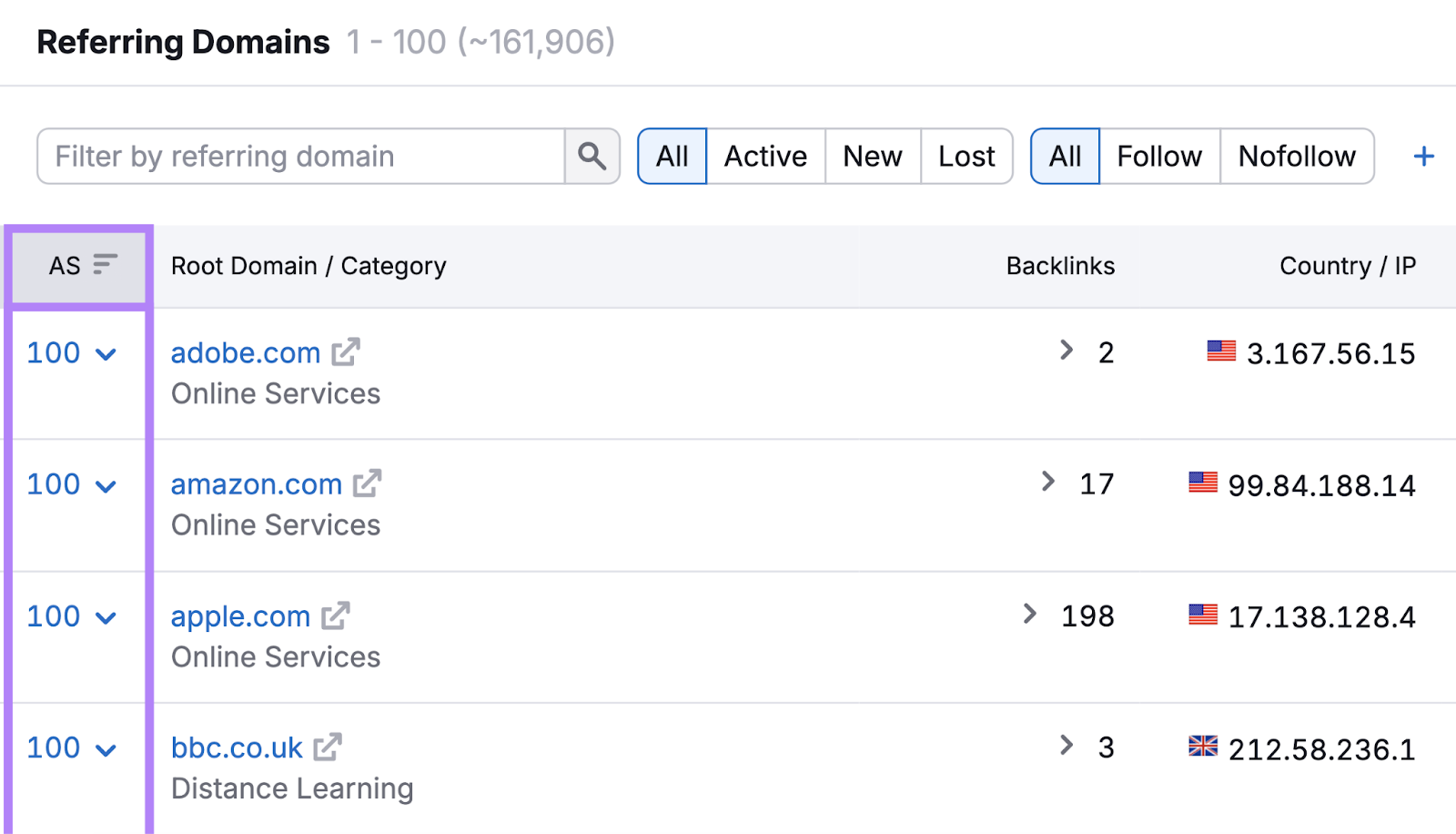
How do you do keyword research for SEO?
1. What is the role of Keyword research in SEO, and why does it play an important role?
Keyword research is one of the most important aspects of SEO because it directly impacts how well your content ranks on search engines. Acknowledging what your audience is searching for helps you create relevant and optimized content for those specific queries. By knowing the search intent that regular visitors are looking for, you can tailor your website’stciles, blogposts, and services pages to target those particular keywords.
It increases your organic traffic and ensures that the content you produce meets the needs and interests of your audience. For instance, if you’re running an online store that sells sneakers, performing keyword research can reveal terms like “best running shoes for flat feet“ or “affordable sneakers for men,“ which you can target in your content to increase visibility in search results and attract more customers.
The below is the example for top searches.

2. Brainstorming for Keywords
Brainstorming for keywords is the initial step in the keyword research process, and it involves thinking about your business, niche, and the potential questions your audience might have. Start by creating a list of broad topics related to your industry, products, or services. These could be things like “digital marketing,” “healthy eating,“ or “home improvement tips.“ Once you have a list of broad topics, you can break them down into more specific subtopics or long-tail keywords.
For example, from “digital marketing,“ you could narrow down to “SEO services,” “email marketing tips,“ or “social media strategies.“ This helps identify general and specific search intents that people might use when looking for solutions in your area of expertise.
3. What are some things to know before finding a suitable keyword? (Competitor’s Keywords Analysis)
It is important to find the most suitable keyword. It involves not only brainstorming but also analyzing your competition. By gathering your competitors’ keywords for which they are ranking, you can gain valuable insights into what works and which topics have significant search volume. Tools like Ahrefs, Semrush, and Moz allow you to analyze your competitors’ keyword strategies. You can enter their websites using these tools to see which keywords they rank for, how much traffic they’re receiving, and the difficulty level of ranking for these terms.
For example, if you find that your competitor’s blog is ranking for the keyword “best-running shoes for long-distance runners,” this could indicate high interest in this topic. You can use this information to target the same or similar keywords in your content, adjusting your approach to make it more compelling or detailed to improve your chances of outranking them.
Competitor analysis gives you a competitive edge and can highlight keyword opportunities that you might not have considered otherwise.
The below image shows you the competitor’s keywords which we can include in your article.

4. How to Choose the Best Keyword?
i) Long-tail Keywords:
Less competition and more targeted traffic.
ii) Latent-Semantic Indexing (LSI) Keywords:
Related terms that support the main keyword.
iii) Follow Recent Trends:
Stay updated using Google Trends.
iv) Location-Based Keywords:
Useful for local SEO (e.g., “plumber in Miami”).
5. Keyword Research Tools
i) Google Trends
ii) Google Keyword Planner
iii) Semrush
iv) Soovle
v) Ubersuggest
Emerging Trends in SEO in 2025
1. Artificial Intelligence in SEO
AI is transforming keyword research, content creation, and competitor analysis.
2. Google’s EEAT Factors
Experience, Expertise, Authoritativeness, and Trustworthiness matter more than ever.
3. Core Web Vitals for Enhanced Ranking
Focus on LCP, FID, and CLS for performance.
Quick Tips to Improve Core Web Vitals
- Use fast hosting
- Compress media
- Defer JavaScript
Practical Guide to Improving Your Website’s SEO in 2025
1. Using AI for SEO
i) AI-Powered Keyword Research
Use AI tools to uncover opportunities faster.
ii) Understanding Search Intent with AI
Analyze what users want to see.
iii) On-page Optimization with AI
Optimize content layout and structure using smart suggestions.
iv) Competitive Analysis
Track competitors’ moves in real-time.
v) Facilitating Content Creation
Generate outlines and FAQs and draft content using AI.
2. Doing SEO Yourself
- Use Google Search Console
- Follow on-page and technical SEO best result
- Build relationships for backlinks
Conclusion
SEO in 2025 requires a mixture of solid fundamentals, awareness of emerging trends, and smart implementation. You can secure your place in Google’s top ranking by aiming at valuable content, user experience, and your site’s technical health.
FAQs
Q1: How long does SEO take to show results?
A: Typically, it is 3–6 months, depending on competition and effort.
Q2: Is SEO better than PPC?
A: SEO brings long-term results, while PPC is immediate. Both have their place.
Q3: Can I do SEO without coding?
A: Yes, many SEO tasks can be completed without coding skills.
Q4: How often should I update SEO content?
A: Update every 3–6 months or when major algorithm updates occur.
Q5: What’s the best free SEO tool?
A: Google Search Console and Google Keyword Planner are excellent free tools.
Q6: What are the latest Google SEO trends in 2025?
A: In 2025, Google emphasizes EEAT (Experience, Expertise, Authoritativeness, Trustworthiness), Core Web Vitals, mobile optimization, and AI-generated helpful content. Following ethical white hat practices and optimizing user experience is crucial to maintaining or improving rankings in search results.



















































